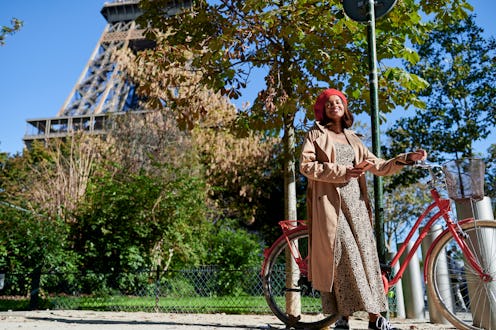
It's coming up to spring break , the point where college students from across the United States break loose, and either do good deeds or indulge in some cheerful hedonism. (OK, most of them definitely do the latter.) But in the midst of all this airport-crowding, news-dominating vacationing, it's an apropos time to wonder: why do we travel for pleasure , and how does it affect our psychology?
The notion of travel for pleasure isn't a modern invention, though its accessibility to all levels of society likely is. Travel often had distinct practical purposes in many historic civilizations, from trade to scholarship to pilgrimage, but empires in particular probably involved pleasurable movement; higher-status ancient Romans and Egyptians indulged in private travel to various places under their control. Tourism as we know it emerged out of the Grand Tours of the 17th and 18th century , in which British nobility were sent around the major sites of Europe to finish their cultural education. From there, it's been a massively expanding industry, with inventions from steam trains to air to package tours gradually bringing down the price and expanding the reach of ordinary citizens without a Lordship under their belt. Famous minds have often extolled travel; the French writer Michel de Montaigne wrote extensive travelogues of his time on the Continent, including positive reviews of German heating.
But it's not all fun and games; psychological science now reveals that there are complicated undercurrents to modern travel, from how travel affects our brains to why we make the tourism choices we do.

Tourism Changes Our Perspective — And How Long We Go Away Matters
While many Americans do not currently possess a passport, there's a psychological consensus that there is significant psychological benefit in experiencing foreign places for extensive periods of time. There's an argument that travel increases basic human happiness because we are, at heart, a nomadic species, though it's unclear how much itchy feet are culturally created and how much they're inherent. That tourism seems to make us happy is borne out by an interesting study in 2013 of Chinese travelers (a very travel-happy nation), which found that people who travelled regularly saw a long-term "impact in terms of sense of being, direction in life, and well-being. Why this comes about — the fulfillment of dreams to see other places, the expansion of understandings about what a good life might mean — is still open to argument.
Brief periods of travel, however, may not be as beneficial as more extensive uprooting. It's a big point of discussion. One 2015 study, for instance, examined the creative directors of 270 fashion houses and the creativity of their latest lines (assessed by in-the-know fashion experts, not random people off the street who wouldn't know John Galliano from a baguette), and determined that, as the Atlantic reported at the time , "the brands whose creative directors had lived and worked in other countries produced more consistently creative fashion lines than those whose directors had not." And another study of undergrads who'd studied abroad for months found that they often experienced significant personality shifts, making them more open to new things and to fulfill tasks.
This creativity boost may not be about living, though, as boosts in unique thinking have also been demonstrated to happen even if people are only contemplating a foreign location in their imaginations. A study from Indiana University found that students who thought they were solving a problem based in Greece provided much more inventive answers than those who were told the problem was local.
There are also extensive questions about whether travel makes people more compassionate and tolerant because of contact with other cultures and people, expanding their "boundary of empathy. " As anybody with a racist uncle who's come back from a trip abroad just as racist as ever will attest, this isn't a universal experience. Mahatma Gandhi called travel "the language of peace, " but others have argued that anything less than extensive immersion in a culture over a significant period will be unlikely to broaden horizons or alter tolerance levels.
Solo Travelers Really Are A Different Breed
There's also a subsection of psychology focused on the particular experience of choosing to travel solo. This is also a highly gendered discussion, since women, for reasons of safety, are often told to travel in groups or pairs, so that individual travel is regarded as something of a gender taboo.
A study from 2015 found that individual travelers are a fast-growing sector of the travel industry, particularly because of lower costs that mean group travel isn't necessary to achieve economies of scale. The choice to travel on one's own, it discovered, was motivated by a balance of priorities in which personal indulgence and the wish to remain free of constraints were more important than togetherness or making things less expensive.
Booking Your Vacation From The Office Isn't A Good Idea
This is an intriguing aspect of human decision-making: it seems that our ability to make leisure decisions around travel while we're in a work space impedes our later enjoyment while we're a tourist. Separate studies have found that booking hotels for a holiday during business hours, while you're at work, means that you'll both likely spend more (selecting a higher-quality place to stay) and rate your own pleasure at the end of the trip as lower than if you wait until you get home and put your feet up.
Why might this be the case? Scientists behind one of the studies noted that it's likely about the psychology of a workspace; the contrast of a screen showing happy carefree tourists and a cramped office may make us more inclined to spend more and make more extravagant decisions, because it's perceived to be so desirable in the moment. In more relaxing surroundings, we can be more objective.
Too Much Travel May Be Harmful
The lifestyle of the "hypermobile" is often depicted as hugely glamorous; nomadic film stars and singers are among the members of the so-called jet set that enjoys a wide societal image of privilege and comfort. However, frequent, intense travel doesn't match the reality, various studies have found.
In 2015, researchers from the University of Surrey found that there was a considerable perception gap between people's ideas of the hypermobile lifestyle and the realities, which are often governed by jet lag, expense, estrangement from support networks, and health risks. The idea of the jet set lifestyle as highly desirable likely comes from more archaic views of travel, the days of smoking on planes. Hypermobility for the sake of business has come under specific scrutiny; you don't have to watch George Clooney go haywire in Up In The Air to realize that there are significant risks to a life on the road. Research from 2011 indicates that hypermobile business people perceive themselves to be less heavy, have a higher obesity rate and a higher BMI than people who have more localized jobs.
What can we learn from this? Being a tourist is perhaps less effective for our psychology than the travel agent slogans might indicate, but it does seem to make genuine changes in our outlook. To get the most out of your trip, book while relaxed, stay a long time in one place, and weigh up the priorities of traveling alone.

What is leisure tourism, and what examples?
- March 2, 2023
Leisure tourism, a popular form of travel, refers to the act of taking a trip for the purpose of relaxation, recreation, or enjoyment. It involves participating in activities typically done during one’s free time, such as sightseeing, shopping, dining out, and engaging in cultural events. While leisure tourism can take many forms, it is often associated with vacations and getaways, allowing individuals to escape the stress of everyday life and explore new places.
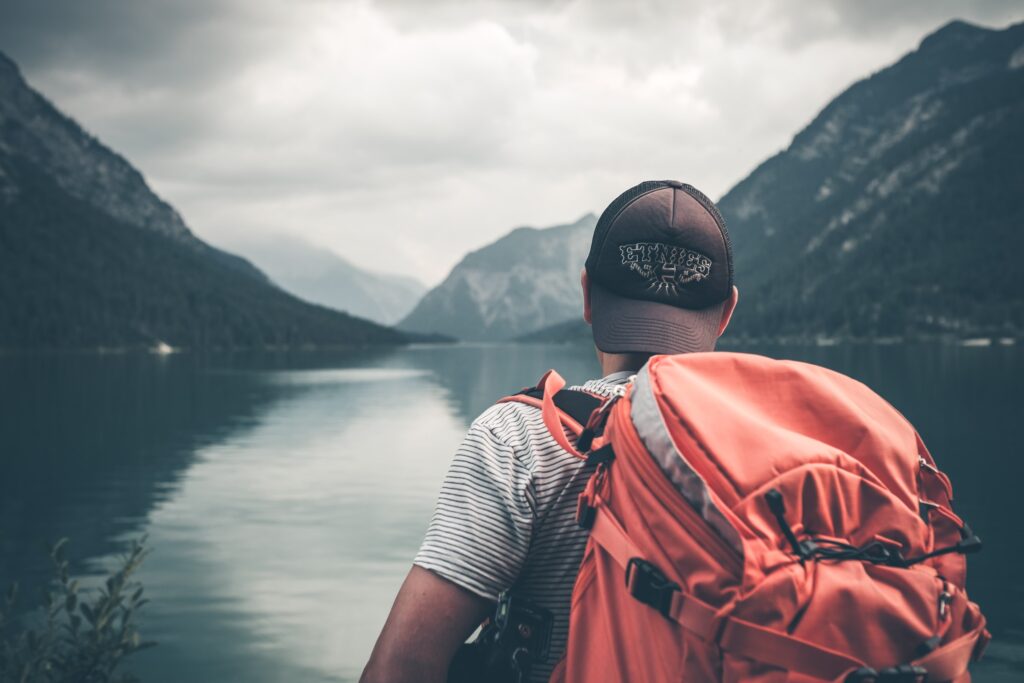
Despite the COVID-19 pandemic’s impact on travel, leisure tourism remains a popular choice for individuals looking to recharge and explore the world. From exploring famous landmarks in Paris to sunbathing on the beaches of Bali, there are countless examples of leisure tourism destinations and activities available worldwide. In this article, we will explore the concept of leisure tourism and provide several examples of popular destinations and activities you can add to your travel bucket list.
What is leisure travel?
Leisure travel refers to traveling for pleasure rather than business or work-related purposes. It is a type of travel that involves exploring new destinations, engaging in recreational activities, and relaxing and unwinding. Whether traveling alone or with friends and family, leisure travel provides a much-needed break from the daily routine and allows individuals to experience new cultures, environments, and experiences.
For the person traveling, leisure travel can provide a wide range of benefits, including learning about different cultures, making new friends, and creating lasting memories. It can also provide a sense of adventure, challenge, and excitement that can be hard to find in everyday life. Additionally, leisure travel can help reduce stress levels and improve mental health by providing a break from the daily routine.
As a tourist, leisure travel can also significantly impact the environment and local communities. Responsible tourism practices, such as supporting local businesses, using eco-friendly transportation, and being mindful of waste, can help minimize negative impacts and promote sustainable tourism.
Of course, finances are an essential consideration for leisure travel. Depending on the destination, activities, and accommodations chosen, leisure travel can be a costly endeavor. However, with careful planning, budgeting, and research, it is possible to enjoy leisure travel without breaking the bank. Many travel websites and apps offer discounts and deals on flights, hotels, and activities, making planning an affordable and enjoyable leisure travel experience easier than ever.
Types of leisure tourism
Adventure tourism.
One of the most popular types of adventure tourism is extreme sports. From bungee jumping to skydiving, there’s no shortage of heart-pumping activities to get your adrenaline flowing. These experiences are not for the faint of heart, but they offer a rush like no other and can be incredibly rewarding for those who take the plunge.
For those who prefer a slower pace, there are plenty of other adventure tourism options. Hiking, camping, and backpacking are all popular choices that allow you to explore the great outdoors and connect with nature. Whether traversing rugged mountain trails or pitching a tent in a remote wilderness area, these activities offer a chance to escape the hustle and bustle of everyday life and immerse yourself in the beauty of the natural world.
Of course, adventure tourism is only for some. Some people prefer to stick to more traditional types of leisure tourism, such as beach vacations or city breaks. However, you love a challenge and aren’t afraid to step outside your comfort zone. In that case, adventure tourism can be an incredibly rewarding and life-changing experience.
So, whether you’re looking to bungee jump off a bridge, hike through the wilderness, or explore a new city on foot, there’s an adventure tourism experience that’s perfect for you. So why not take the leap and try something new? You never know what amazing experiences and memories you might create!
Cultural tourism
One of the most exciting things about cultural tourism is that it can take you to places you never imagined. Whether exploring ancient ruins in Greece, visiting museums in Paris, or attending festivals in Japan, there are countless opportunities to learn and grow through cultural tourism.
Of course, cultural tourism doesn’t have to take you to far-flung destinations. There are plenty of opportunities to explore different cultures closer to home, whether visiting museums and art galleries, attending cultural events in your city, or trying new foods at ethnic restaurants.
For those who love to travel, cultural tourism offers a chance to see the world differently. Rather than just ticking off tourist attractions, cultural tourism allows you to connect with locals, learn about their way of life, and gain a deeper appreciation for the rich diversity of our planet.
So whether you’re a history buff, an art lover, or simply someone who wants to experience something new, cultural tourism has something for everyone. So why not step out of your usual environment and immerse yourself in the rich tapestry of cultures that make our world so fascinating? Who knows what incredible experiences and memories await you along the way!
Suppose you’re someone who cares deeply about the environment and wants to make a positive impact on the world. In that case, ecotourism might be the perfect choice for your next leisure tourism adventure. This tourism category is all about traveling responsibly and sustainably, focusing on preserving natural habitats and supporting local communities.
One of the main things to consider when it comes to ecotourism is your travel’s impact on the environment. This means choosing eco-friendly accommodations and activities, such as staying in lodges that use renewable energy, participating in wildlife conservation efforts, and using low-impact transportation methods like hiking or cycling.
Another important factor to consider is your travel’s impact on the local community. Ecotourism aims to support local economies and promote cultural exchange, so it’s important to choose tours and activities led by local guides and support local businesses.
Of course, ecotourism is not just about being responsible and sustainable – it’s also about having fun and experiencing the beauty of nature. Whether you’re exploring pristine forests, snorkeling in coral reefs, or observing wildlife in their natural habitats, there’s no shortage of amazing experiences to be had in ecotourism.
Suppose you’re passionate about the environment and want to positively impact the world while having fun and exploring new places. In that case, ecotourism might be the perfect fit for you. And as the tourism industry continues to grow and evolve, there are plenty of opportunities for jobs and careers in eco-tourism, making it a great choice for those who want to make a difference while pursuing their passions.
Beach tourism
Beach tourism is leisure tourism that revolves around visiting coastal destinations and enjoying the beach environment. This type of tourism is popular among people of all ages, from families with young children to solo travelers seeking relaxation and recreation.
Beach tourism destinations vary widely, from crowded beaches in popular tourist hotspots to secluded and pristine shorelines in remote locations. Some of the most popular beach tourism destinations include the Caribbean, Hawaii, the Maldives, and the Mediterranean.
Activities commonly associated with beach tourism include swimming, sunbathing, beach volleyball, surfing, and water sports such as jet skiing, parasailing, and snorkeling. Many beach tourism destinations also offer a range of amenities, such as beachfront restaurants, bars, cafes, and hotels and resorts catering to beachgoers.
Beach tourism can be a great way to escape the stresses of everyday life and enjoy some time in the sun and sand. It offers many experiences, from relaxing and soaking up the sun to more active pursuits such as water sports and beach games. For those who love the ocean and the beach environment, beach tourism is a must-try type of leisure tourism.
Health and wellness tourism
Health and wellness tourism is a type of leisure tourism that focuses on improving physical, mental, and emotional well-being through various activities and services. It involves traveling to destinations that offer specialized programs and services to help visitors achieve their health and wellness goals.
Some of the most common health and wellness tourism activities include spa treatments, yoga and meditation classes, fitness activities, healthy eating, and alternative medicine practices such as acupuncture and herbal remedies. Health and wellness tourism destinations can range from specialized wellness centers and retreats to traditional vacation spots that offer a variety of wellness-focused activities and services.
Health and wellness tourism has become increasingly popular in recent years as more people seek to prioritize their health and well-being. This type of tourism offers a range of benefits, including stress relief, improved physical health, and a renewed sense of energy and vitality.
In addition to the benefits for individual travelers, health and wellness tourism can also positively impact local communities. It can create job opportunities in the wellness industry and stimulate local economies through increased tourism.
Overall, health and wellness tourism is a great option for those seeking to prioritize their health and well-being while enjoying leisure travel’s benefits. With a wide range of activities and services available, there is something for everyone in the world of health and wellness tourism.
Can business travelers have leisure time on a business trip?
Yes, business travelers can have leisure time on a business trip, depending on their schedule and the purpose of their trip. Many business travelers often have free time during their trip, either before or after their work obligations are completed. During this time, they may choose to engage in leisure activities and explore the destination they are visiting.
Business travelers may also extend their trip for a few days or a weekend to have more time to explore the destination and engage in leisure activities. This is often called “bleisure” travel, a combination of business and leisure travel.
However, it is important to note that the amount of leisure time a business traveler can have may depend on the nature of their business trip and the expectations of their employer. Sometimes, the schedule may be tightly packed with meetings, and there may be little free time for leisure activities. Additionally, some employers may have policies restricting the amount of leisure time a business traveler can have or the type of activities they can engage in during their free time.
Ultimately, it is up to the individual business traveler to determine how much leisure time they can have on a business trip and to balance their work obligations with their desire to explore and engage in leisure activities.
What are the examples of leisure tourism?
There are many examples of leisure tourism, as it encompasses many activities and destinations. Some examples of leisure tourism include:
- Beach tourism – visiting coastal destinations for sun, sand, and water activities.
- Adventure tourism – engaging in activities such as hiking, skiing, and whitewater rafting in natural environments.
- Cultural tourism – visiting destinations to learn about the local culture, history, and customs.
- Health and wellness tourism – traveling to destinations that offer specialized programs and services to improve physical, mental, and emotional well-being.
- Ecotourism – visiting natural environments to observe and learn about the local flora and fauna while minimizing environmental impact.
- Rural tourism – visiting rural destinations to experience rural life and engage in farming, fishing, and hunting activities.
- Wine tourism is visiting destinations known for their wine production and touring vineyards and wineries.
- Sports tourism – traveling to participate in or observe events such as marathons, golf tournaments, and soccer matches.
- Food tourism – traveling to destinations to experience local cuisine and food traditions.
- Educational tourism is traveling to destinations to learn about specific subjects, such as art, history, or language.
These are just a few examples of leisure tourism, and many other types of tourism can fall under this category. Ultimately, leisure tourism is about enjoying the free time and engaging in activities that provide relaxation, entertainment, and personal enrichment.
In conclusion, leisure tourism encompasses various activities and destinations, from beaches to educational tourism. The purpose of leisure tourism is to provide individuals with opportunities for relaxation, entertainment, and personal enrichment. People engage in leisure tourism to escape from their usual environment, explore new destinations, and engage in activities that they enjoy or that interest them.
While there are many types of leisure tourism, all of them share a common goal of providing individuals with a break from their daily routines and an opportunity to have fun and create memorable experiences. As the tourism industry continues to grow and evolve, we can expect to see new types of leisure tourism emerge, and existing types become more popular.
Ultimately, leisure tourism plays an important role in the tourism industry and the lives of individuals who engage in it. It provides opportunities for personal growth, cultural exchange, and economic development. Whether it’s a relaxing beach vacation, an adventurous trek through the wilderness, or an educational trip to a historic site, leisure tourism has something to offer everyone.
David Stokes
Related posts.

8 Hacks to Never pay for Luggage
- March 24, 2023
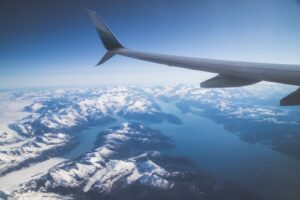
Smart Hacks to Book Cheap Flights in 2023
- March 22, 2023
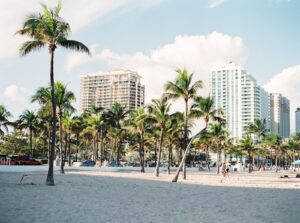
8 Famous Cities in the USA You Must Visit
- March 3, 2023
Trending now

Statistics Canada
www.statcan.gc.ca
Common menu bar links
- Français
- canada.gc.ca
Home > Publications > 11-008-X > Main page >
Institutional links
Publications, canadian social trends.
- 11-008-X No. 87 2009001
- Previous releases
- Coming articles
- Social indicators
- Attention educators!
- Other research
- More information
- Order print
Page content follows
Going on vacation: Benefits sought from pleasure travel
Archived content.
Information identified as archived is provided for reference, research or recordkeeping purposes. It is not subject to the Government of Canada Web Standards and has not been altered or updated since it was archived. Please " contact us " to request a format other than those available.
by Susan Crompton with Leslie-Anne Keown
Why do Canadians travel for pleasure? What you should know about this study Family-and-friends and rest-and-relaxation: For some it’s a pair, for others it’s a trade-off Children influence family-and-friends and work status affects R&R The benefits people want dictate the qualities they look for in a destination Learning-and-discovery: It’s all about adventure Summary
For centuries, travel for pleasure was a wealthy person’s privilege. But beginning in the 20th century, as average incomes rose and as cars and planes made distances shrink, the vacation or pleasure trip became attainable for people from almost all walks of life. 1
With over three in four Canadian adults taking even a brief holiday, 2 pleasure travel has become a large and important industry. Canadians spend tens of billions of dollars within Canada itself and billions more in other countries. 3 This spending generates government revenues that are also in the billions, primarily from sales, employment and business taxes. 4
In the last year or so, though, the tourism industry has faltered and conditions are not expected to improve in 2009. 5 A poll of Canadian consumer spending intentions, conducted in December 2008, identified vacation spending as the second most common cost-cutting measure in 2009. 6 Meanwhile, the term “stay-cation” was coined to describe the increasing tendency of people to take their vacations at home. 7
Nevertheless, it’s not certain that these intentions will be acted upon. Several decades of tourism research generally conclude that the benefits people expect to derive from their travel experience are better predictors of their travel behaviour than their income or other socio-demographic characteristics. 8 , 9 People travel for pleasure because they want to escape the everyday, to feel rejuvenated, to acquire status and prestige, to socialize, to learn something, or just to enjoy the scenery. 10 And these benefits of pleasure can be much more powerful motivators to people than affordability alone.
While these benefits have been identified in earlier studies, this article adds to the discussion by quantifying the value of these benefits. By measuring their magnitude on an eight-point index, we can compare the value of a given benefit to different kinds of travellers; we can also compare the value of one benefit relative to another. In addition, since many people take vacation or pleasure trips for multiple reasons, we are able to identify correlated travel benefits and discuss them as pairs, rather than as separate items. Ultimately, we hope that these findings will be useful to the Canadian tourism industry.
Using data from the 2006 Travel and Activity Motivation Survey, this article examines the three most popular benefits of vacation or pleasure travel: rest and relaxation (R&R index); nurturing family and friendship ties (family-and-friends index); and learning and discovery (discovery index). The study population is restricted to travellers aged 25 and over who live in a family with children under 18, in a couple, or on their own. (See “ What you should know about this study ” for concepts and definitions.)
Why do Canadians travel for pleasure?
Canadian travellers look for three principal types of benefits when they go on a vacation or pleasure trip. The first benefit is simply rest-and-relaxation (R&R index): the traveller’s main objective is to get a break from their daily environment, to relax and relieve stress, and to have no fixed schedule. On an index of 0 to 8, where 6.0 or over is defined as “highly important,” the overall average score on the benefits index for rest-and-relaxation is 6.2. R&R has the highest average score of all three benefits because almost two-thirds of adult travellers said that, for them, this was a highly important benefit of a pleasure trip (Chart 1).
Chart 1 Rest-and-relaxation is the most popular benefit of vacation or pleasure travel
The second type of benefit involves nurturing family and friendship ties (family-and-friends index). In this case, a key goal of the trip is to keep family ties alive, to enrich the traveller’s relationship with their spouse and children, to create lasting memories, and to renew personal connections with people other than family. The overall average score on the index for family-and-friends is 5.2 out of 8.0 points, with almost half (48%) of adult travellers reporting that this is a highly important benefit of pleasure travel.
The third type of travel benefit is learning-and-discovery (discovery index). Travellers look forward to seeing or doing something new and different, learning about history or other cultures and places, enriching their perspective on life, and stimulating their intellect. This benefit is highly important to just over one-quarter of travellers, making its overall average score of 4.4 fairly low compared to the other two benefits indices.
It is certainly possible to seek more than one benefit from the same pleasure or vacation trip, and undoubtedly many travellers have multiple purposes. 11 There is a mild-to-moderate positive correlation between the benefits indices of family-and-friendship ties and rest-and-relaxation; that is, as the importance of family-and-friends increases, so does the importance of R&R. There is also a positive link between family and friendship ties and learning-and-discovery, but no association between discovery and R&R (Chart 2).
Chart 2 There is a mild-to-moderate positive correlation between family-and-friendship ties and other travel benefits
We will follow up on these correlations and discuss family-and-friends and R&R together as a pair of travel benefits. We will then examine adults who describe learning-and-discovery as a key benefit of their vacation or pleasure travel plans.
What you should know about this study
Data in this study were drawn from the 2006 Travel Activities and Motivation Survey (TAMS). TAMS was conducted by Statistics Canada on behalf of the Canadian Tourism Commission, three federal agencies and nine provincial and territorial agencies and departments responsible for tourism. Travellers were defined as persons answering that they had taken an out-of-town trip of one or more nights in the two-year period preceding the survey.
This article is based on a sample of about 15,500 respondents to TAMS representing over 11.3 million Canadian travellers aged 25 and over. This study population comprises travellers who live in a family with children under 18, live with a spouse or partner only, or live alone. Travellers are restricted to adults aged 25 and over since they are more likely than younger adults to be making the key decisions about pleasure travel such as where to go and what to spend. About 3,000 respondents, representing just over 3.6 million travellers, who were living with children aged 18 and over, or with anyone outside the immediate nuclear family (e.g. grandparents, in-laws, or other relatives) are also excluded because it is impossible to reasonably assume that these family members travel together, making the effect of family structure on travel motivations and behaviour difficult to interpret.
Definitions Travellers: persons aged 25 and older who had taken an out-of-town vacation or pleasure trip of one or more nights in the past two years. Family structure: the study population comprises travellers living in four basic family types. Living with a spouse/partner and child (or children) under age 18 living at home. Also referred to as husband-wife family with children. Living with a child (or children) under age 18 living at home. Also referred to as a lone-parent family. Living in a couple, living with a spouse or partner only. Living alone . Referred to as solo. Preliminary analysis showed that age is a primary factor dictating the likelihood of travelling for pleasure, so we separated the solo and couple family types into two age groups—25 to 54 years, and 55 years and older. Travellers with children are not sub-divided by age because over 97% of them were between 25 and 54 years old.
Travel benefits Respondents were asked about 15 specific benefits of travel, which they were asked to rate as 0 “of no importance,” 1 “somewhat important” or 2 “highly important.” Following the procedure established in the travel literature, 1 , 2 , 3 we conducted a factor analysis to identify those specific benefits that were most closely related and could be grouped together into general themes. Based on the results, we were able to collapse 11 of the 15 questions into the three travel benefits indices described below: 4 Rest-and-relaxation (R&R) : get a break from your day-to-day environment; relax and relieve stress; have a life with no fixed schedule (to do what I want, when I want). Family-and-friendship ties (Family-and-friends) : to keep family ties alive; to enrich your relationships with your spouse, partner and/or children; to create lasting memories; to renew personal connections with people other than family. Learning-and-discovery (Discovery) : to see or do something new and different; to gain knowledge of history, other cultures or other places; to enrich your perspective on life; to stimulate your mind or be intellectually challenged.
The model We used linear regression models with the benefit index as the dependent variable. Coefficients were estimated through a weighted regression that used the TAMS survey weights, with variance estimation done through survey bootstrapping. Coefficients are unstandardized; statistical significance was calculated at p < 0.01 (99% confidence). Variables in the models include travellers’ socio-demographic and economic characteristics, as well as a set of destination determinants. See Table 1 for a complete list of variables in the models.
For readers wanting a practical application of the model results, the coefficients may be interpreted in an additive fashion as shown in the following example. Begin with the base score for the travel index and then add the required variables. Thus, we can add up: base score for family-and-friends index (3.36) for a woman (0.19) with spouse and children under 18 (1.05) and household income of $60,000 to $99,999 (-0.03) having high school education (0.00) and a full-time paid job (-0.11), who also scores over 6.0 on the rest-and-relaxation index (0.61) and also rates as highly important destination attributes that there are lots of activities for the kids (0.62), the language and/or culture is familiar (0.16) and it feels safe (0.30). Total score on the family-and-friends travel benefits index for this hypothetical individual is 6.15.
Data limitations Due to the way the data were collected by TAMS, we cannot identify the duration of pleasure trips taken; for instance, we cannot distinguish a three-week trip to Europe from an overnight camping trip. Also, although we know where respondents travelled for pleasure during the two-year survey period, we cannot identify the destination of any one particular trip. These limitations mean that we cannot match travel benefits to specific destinations or to different types of trips, and therefore cannot determine, for example, whether R&R trips tend to be longer vacations taken abroad and trips to nurture family and friendship ties are shorter visits made mainly in Canada.
- Gitelson, R. J., and Kerstetter, D. L. (1990). The relationship between sociodemographic variables, benefits sought and subsequent vacation behavior: A case study. Journal of Travel Research, 28 (3), 24-29.
- Heung, V. C. S., Qu, H., and Chu, R. (2001). The relationship between vacation factors and socio-demographic and traveling characteristics: the case of Japanese leisure travellers. Tourism Management, 22 (3), 259-269.
- Moscardo, G., Morrison, A. M., Pearce, P.L., Lang, C-T., and O’Leary, J. T. (1996). Understanding vacation destination choice through travel motivation and activities. Journal of Vacation Marketing, 2 (2), 109-122.
- The four questions that did not fit into any benefits category were: to seek solitude or isolation; to have stories to share/something interesting to talk about; to be physically challenged/physically energized; to be pampered.
Family-and-friends and rest-and-relaxation: For some it’s a pair, for others it’s a trade-off
Canadian travellers aged 25 and over consider rest-and-relaxation to be an important benefit of taking a vacation or pleasure trip. Maintaining and strengthening family and friendship ties is also reported to be an important benefit of taking a pleasure trip.
Nevertheless, the benefits of having some unstructured time for rest and relaxation are more valuable to some travellers than others; exactly the same may be said of the benefits of nurturing family and social networks. On a basic level, we would expect people’s preferences—expressed as scores on each benefit index—to be influenced by their socio-demographic characteristics such as age, family structure and education. 12 , 13 , 14
Family structure provides the clearest example of the different choices made by travellers with different backgrounds. Simply put, when travellers with children at home go on a vacation or pleasure trip, they want both more bonding with family and friends and more rest and relaxation than other travellers. They have a score of 5.6 on the family-and-friendship index, and a score of 6.6 to 6.7 on the rest-and-relaxation index (depending on marital status). In contrast, travellers who live alone place much less value on the travel benefits of family-and-friends, while travellers who are in their mid-50s or older are less motivated by R&R (Chart 3, Table A.1).
Chart 3 Travellers in different family types report wanting a different mix of preferred travel benefits
Table A.1 Average values for travel benefits indices, by selected characteristics
When women go on a pleasure trip, they reported wanting more in terms of family-and-friendship ties than men (5.3 compared to 5.0) although they also reported that they expect just as much in the way of rest-and-relaxation.
Travellers who work full time have a significantly higher-than-average score on the benefits index for R&R (6.5), while their interest in nurturing family-and-friendship ties on holiday is about average (5.1). Part-time workers have average scores for both the R&R and family-and-friends indices (6.2 and 5.3, respectively). Meanwhile, travellers who are not employed (e.g. homemakers, students) rank the travel benefits of family-and-friends higher than travellers in the paid workforce (Chart 4, Table A.1).
Chart 4 Travellers who work full-time prefer the travel benefits of R&R, those outside the workforce place higher value on family-and-friends
Children influence family-and-friends and work status affects R&R
Clearly, a traveller’s demographic and socio-economic characteristics overlap: for example, does a young mother have a higher score on the family ties index because she is a woman or because she has children. And is it her family or her work status that makes her value the R&R aspects of a vacation or a week-end away from home. In order to isolate individual factors from the overlapping effects of other variables, we ran multiple regression models. This allows us to estimate the influence of different characteristics on the benefits scores of Canadian travellers. (See “ What you should know about this study ” for more information about the models.)
Results of the models show that family structure has the most important impact on family-and-friendship scores, even when the influence of other variables is controlled for. Compared with solo travellers, travellers with children score about 1.0 point higher on the index, and travellers in couples about 0.8 points higher, regardless of their age (Table 1, Model 1).
Table 1 Family structure has the most important effect on scores for travel benefits of family-and-friendship ties, even after controlling for other factors
Travellers with children also consider the benefits of rest-and-relaxation to be more important than older travellers do, after taking account of other factors in the model. This result confirms the findings of previous studies, which have identified lower interest in R&R among older travellers, partly because they are more likely to seek out discovery benefits while on a vacation or pleasure trip. 15 , 16
The clearest preference for rest-and-relaxation is shown by travellers who have paid employment. Compared to retirees, travellers who work full time score 1.0 point higher on the R&R index, and part-time workers score almost as high (Table 1, Model 2). Non-retirees outside the workforce, such as homemakers and students, who do not work for pay but nevertheless have daily obligations, also had significantly higher scores on the R&R index than retirees, even when other variables like sex, age and family structure are taken into account. In contrast, work status has no influence on the scores for family-and-friendship ties.
Since the travel benefits of family-and-friends and R&R are moderately correlated, each benefit still has a significant influence on the scores of the other, even when other factors are controlled for. Travellers who describe rest-and-relaxation as a “highly important” travel benefit score 0.6 points higher on the family-and-friends index. Similarly, reporting that nurturing family and friendship ties is “highly important” also increases a traveller’s R&R score by almost 0.6 points, compared with those who do not consider it to be so important.
Women continue to express a greater interest than men in the travel benefits of family-and-friends, even after controlling for other factors such as family structure and work status. Since women generally consider it their role to build and hold together the family’s social networks, 17 they might be expected to rank these elements of a vacation or pleasure trip higher than men.
Level of education has a significant effect on attitudes to R&R, but not on family ties. Travellers with a university degree score almost 0.3 points lower on the R&R index than travellers with high school or some postsecondary, even when other factors like age and income are taken into account.
Finally, the models show that household income has no effect on either R&R or family-and-friends as an explicit benefit of travel for pleasure. This result is unexpected, given the findings of previous studies. 18 , 19 Most probably, our result is an artifact of the TAMS definition of travel (an out-of-town trip for at least one night), which included most survey respondents at almost all income levels. Income may very well be a significant factor for pleasure travel of longer duration or greater distance, which we cannot identify (see “ What you should know about this study ” for data limitations).
The benefits people want dictate the qualities they look for in a destination
The benefits people seek from a vacation or pleasure trip are driven by more than their socio-demographic characteristics. Because pleasure travel entails going out-of-town, travellers choose a destination that they expect to provide the benefits they seek. 20 , 21 , 22 For instance, if R&R is the primary benefit sought, we might expect travellers to go to a place that is “comfortable” so they won’t be required to deal with the unfamiliar.
Travellers who rank higher than average on the rest-and-relaxation benefits index want to go where there will be lots of fun activities for the children. They also prefer to choose a place where they feel safe and they know the language or culture (Chart 5, Table A.1 ).
Chart 5 Travellers scoring high on both family and R&R benefits look for a destination where the children have lots to do
To travellers who score above average on the family-and-friends index, entertaining the kids is also of primary importance. Not surprisingly, friends or family live at their preferred destination.
When we examine the effect of each destination determinant on both travel indices, we can identify three determinants that have a positive effect on scores, even when other factors are taken into account. Travellers score 0.3 points higher on both indices if they report that safety is highly important to them when choosing a destination. Similarly, both scores are somewhat higher for travellers who say that activities for adults are highly important and for those who do not want to worry about health issues ( Table 1 , Models 1 and 2,).
Travellers score 0.8 points higher on the family-and-friendship index when it is highly important that friends or family members are living at their chosen destination. This determinant has the opposite effect on the R&R index, where a traveller’s score drops by 0.5 points. And while an affordable travel package can raise scores by 0.3 points on the R&R index, it has no effect at all on the family-and-friends index, once all other factors are controlled for.
Learning-and-discovery: It’s all about adventure
About 28% of adult Canadian travellers report that learning and discovery is a highly important benefit of their pleasure travel: they want to see or do new things, learn about other cultures and places, and be intellectually challenged ( Chart 1 ). Statistically, there is a somewhat moderate positive correlation between the benefits indices for learning-and-discovery and family-and-friends ( Chart 2 ). But in many respects, travellers who place a high premium on discovery are the inverse of those who strongly value family and friendship ties.
Higher-than-average scores on the discovery index are posted by university-educated travellers and by solo travellers who live alone; in contrast, those with less education and travellers with children score significantly below average. Somewhat unexpectedly, scores do not differ across income groups or across work status (Chart 6, Table A.1 ).
Chart 6 Travellers who rank learning-and-discovery as very important travel benefits simultaneously score low on family-and-friends index
After controlling for the effects of other variables, travellers with a university degree are still bigger fans of discovery benefits than those with high school or some postsecondary, scoring more than 0.7 points higher on the index. It is possible that travellers with higher education developed the habit of inquiry at university and remain “lifelong learners”; it is also possible that social norms require the highly-educated to travel to “expand their horizons,” and that people tend to conform to that expectation 23 ( Table 1 , Model 3).
Family structure remains an important factor, since without children’s needs to consider, travellers can focus on the benefits they prefer. When all other variables including education are taken into account, travellers living alone or in a couple have significantly higher discovery scores than travellers living with children ( Table 1 ).
The influence of destination on benefits scores, though, is greater than the traveller’s socio-demographic characteristics alone. Far and away the most important factor is the desire for novelty. Travellers who are explicitly looking for something new and different score over 1.3 points higher than those who are not. And those who want lots of adult activities also have significantly higher scores on the discovery index, once all other variables in the model are controlled for.
As expected, travellers do not post high marks on the discovery index if they are looking for an experience within their “comfort zone,” for example, to feel safe, to know the language or culture at their destination, or to have friends or family living there. Nevertheless, travellers score almost 0.7 points higher if they rank nurturing family and friendship ties as a “highly important” travel benefit. This finding may reflect the probability that these travellers share their adventure with a spouse or a friend.
People take a vacation or pleasure trip in the expectation of deriving certain benefits from their experience. Getting away from their daily routine is a highly important benefit for almost two-thirds of adult travellers, while almost half say that maintaining social and family ties is of primary importance to them. Discovering something new about the world or themselves is a key objective for just over one-quarter of Canadian adults who go on a vacation or pleasure trip.
There is a moderate positive correlation between the travel benefits of rest-and-relaxation and those of family-and-friendship ties; that is, people seeking to escape their everyday routines are also likely to be looking for ways to strengthen their social relationships. In this pair of benefits, though, R&R always has priority.
Travellers who score above average on these two indices share some common characteristics. They are generally under 55 and often have children at home. They prefer destinations that are comfortable for them, perhaps even predictable: a place where they feel safe, with lots of things to do and see for children and for adults. Travellers with high rest-and-relaxation scores are also looking for a destination that offers an affordable travel package; travellers with high scores on the family-and-friends index want a destination that presents no health concerns. Some choose a destination where people they know live nearby.
There is also a positive correlation between the learning-and-discovery and family-and-friends indices. However, travellers who highly value the discovery benefits of travel can be quite different than others. Travellers who actively seek new experiences or challenges when they take a vacation or pleasure trip generally do not have children under 18 at home, and are more likely to have a university degree. They report wanting to see a place that is special, probably somewhere they have never been before, and where they can participate in more adult-oriented activities.
Finally, once other factors like family structure and destination attributes are taken into account, work status is significant only for travellers looking for rest-and-relaxation, and education plays a role only among travellers who want intellectual discovery. The results of the regression models show that household income has no effect on any of the benefits scores, but this finding should be interpreted with caution.
Susan Crompton and Leslie-Anne Keown are senior analysts with Canadian Social Trends.
- Heung, V. C. S., Qu, H., and Chu, R. (2001). The relationship between vacation factors and socio-demographic and traveling characteristics: the case of Japanese leisure travellers. Tourism Management , 22 (3), 259-269.
- About 79% of Canadians aged 25 and over—more than 18.4 million—spent at least one night out-of-town on a pleasure or vacation trip between 2004 and 2006. Statistics Canada, 2006. Travel and Activity Motivation Survey (TAMS), custom tabulation.
- In the third quarter of 2008, Canadians spent $15.1 billion on tourism within Canada; in the year 2007, they spent $26.7 billion in other countries. Statistics Canada. (2009). National Tourism Indicators, Quarterly Estimates , Third quarter 2008. Catalogue no. 13-009-XWE. Ottawa: Minister of Industry; and Statistics Canada (2008). International Travel – 2007. Catalogue no. 66-201-X. Ottawa: Minister of Industry.
- Estimated revenues for all three levels of government were estimated to reach more than $19.7 billion in 2007, mostly from sales taxes on products and services and from income taxes on employment and business taxes. Statistics Canada. (2008). Government revenue attributable to tourism. The Daily , November 12, 2008.
- Statistics Canada. (2009).
- The primary target for cost-cutting was spending on restaurants and fast food. Wells, J. (2009, January 2). The Canadian consumer: Handle with care. The Globe and Mail , p. A1.
- Harris, M. (2008, December 17). Tight money means more ‘staycations.’ The Ottawa Citizen , p. D1.
- Sarigöllü, E., and Huang, R. (2005). Benefits segmentation of visitors to Latin America. Journal of Travel Research , 43 (3), 277-293.
- Loker, L. E., and Perdue, R. R. (1992). A Benefit-based segmentation of a non-resident summer travel market. Journal of Travel Research , 31 (1), 30-35.
- Gitelson, R. J., and Kerstetter, D. L. (1990). The relationship between sociodemographic variables, benefits sought and subsequent vacation behavior: A case study. Journal of Travel Research , 28 (3), 24-29
- Gitelson and Kerstetter. (1990).
- Heung, Qu, and Chu. (2001).
- Moscardo, G., Morrison, A. M., Pearce, P. L., Lang, C-T., and O’Leary, J. T. (1996). Understanding vacation destination choice through travel motivation and activities. Journal of Vacation Marketing , 2 (2), 109-122.
- Moscardo, Morrison, Pearce, Lang, and O’Leary (1996).
- Gitelson and Kerstetter (1990).
- Maushart, S. (2001). Wifework: What marriage really means for women . London: Bloomsbury.
- Shoemaker, S. (1994). Segmenting the U.S. travel market according to benefits realized. Journal of Travel Research , 32 (3), 8-21.
- Heung, Qu, and Chu (2001).
- Pitts, R. E., and Woodside, A. G. (1986). Personal values and travel decisions. Journal of Travel Research , 25 (1), 20-25.
Leisure, tourism
- Living reference work entry
- First Online: 01 January 2015
- Cite this living reference work entry

- Garry Chick 3 , 4
1175 Accesses
Like many social science concepts based on terms from natural languages, leisure can be considered with regard to its definition and its meaning. Scholars are concerned with the former, inasmuch as a clear and precise definition of a concept is necessary for proper study of it. They are also interested in the meaning of leisure but usually in terms of understanding how members of particular social or cultural groups experience it.
With respect to the definition of leisure, scholars commonly regard it as having three qualities, each necessary but none sufficient to fully characterize it. First, leisure requires time that is relatively unobligated and where freedom of choice is available. Second, certain kinds of activities, usually without external reward but intrinsically pleasurable, are commonly associated with leisure. These include play, games, sport, resting, participating in festivals or the arts, watching television, or engaging in other forms of social and individual...
This is a preview of subscription content, log in via an institution to check access.
Access this chapter
Institutional subscriptions
Chan, N., H. Xiao, C. Chau, and H. Ma 2012 The Meaning of Leisure for Residents in Hong Kong. Journal of Hospitality Marketing and Management 21:311-329.
Article Google Scholar
Chick, G., R. Makopondo, and W. Winneshiek 2013 Lexicons of Leisure: An Ethnographic Approach to Representations of Leisure in Three Cultures. Unpublished Manuscript: Department of Recreation, Park and Tourism Management, The Pennsylvania State University.
Google Scholar
Chick, G., and S. Shen 2011 Leisure and Cultural Complexity. Cross-Cultural Research 45:59-81.
Ito, E., G. Walker, and H. Liang 2014 A Systematic Review of Non-Western and Cross-Cultural/National Leisure Research. Journal of Leisure Research 46:226-239.
Liu, H., C. Yeh, G. Chick, and H. Zinn 2008 An Exploration of the Meanings of Leisure: A Chinese Perspective. Leisure Sciences 30:482-488.
Nawijn, J., O. Mitas, Y. Lin, and D. Kerstetter 2012 How Do We Feel on Vacation? A Closer Look at How Emotions Change over the Course of a Trip. Journal of Travel Research 52:265-274.
Paris, C., G. Musa, and T. Thirumoorthi 2014 A Comparison between Asian and Australasia Backpackers using Cultural Consensus Analysis. Current Issues in Tourism doi:10.1080/13683500.2014.920771.
Purrington, A., and B. Hickerson 2013 Leisure as a Cross-Cultural Concept. World Leisure Journal 55:125-137.
Rubin, J., N. Flowers, and D. Gross 1986 The Adaptive Dimensions of Leisure. American Ethnologist 13:524-536.
Shaw, S. 1985 The Meaning of Leisure in Everyday Life. Leisure Sciences 7:1-23.
Download references
Author information
Authors and affiliations.
The Pennsylvania State University, Pennsylvania, USA
Garry Chick
Department of Recreation, Park, and Tourism Management, 701 C Donald H. Ford Building, Pennsylvania, 16802, USA
You can also search for this author in PubMed Google Scholar
Corresponding author
Correspondence to Garry Chick .
Editor information
Editors and affiliations.
School of Hospitality Leadership, University of Wisconsin-Stout, Menomonie, Wisconsin, USA
Jafar Jafari
School of Hotel and Tourism Management, The Hong Kong Polytechnic University, Hong Kong, Hong Kong SAR
Honggen Xiao
Rights and permissions
Reprints and permissions
Copyright information
© 2014 Springer International Publishing Switzerland
About this entry
Cite this entry.
Chick, G. (2014). Leisure, tourism. In: Jafari, J., Xiao, H. (eds) Encyclopedia of Tourism. Springer, Cham. https://doi.org/10.1007/978-3-319-01669-6_317-1
Download citation
DOI : https://doi.org/10.1007/978-3-319-01669-6_317-1
Received : 15 September 2014
Accepted : 15 September 2014
Published : 19 September 2015
Publisher Name : Springer, Cham
Online ISBN : 978-3-319-01669-6
eBook Packages : Springer Reference Business and Management Reference Module Humanities and Social Sciences Reference Module Business, Economics and Social Sciences
- Publish with us
Policies and ethics
- Find a journal
- Track your research
UN Tourism | Bringing the world closer
Un standards for measuring tourism, share this content.
- Share this article on facebook
- Share this article on twitter
- Share this article on linkedin
Glossary of tourism terms
Tourism is a social, cultural and economic phenomenon which entails the movement of people to countries or places outside their usual environment for personal or business/professional purposes. These people are called visitors (which may be either tourists or excursionists; residents or non-residents) and tourism has to do with their activities, some of which involve tourism expenditure.
A B C D E F G H I J K L M N O P Q R S T U V W Y Z
Activity/activities : In tourism statistics, the term activities represent the actions and behaviors of people in preparation for and during a trip in their capacity as consumers ( IRTS 2008, 1.2 ).
Activity (principal): The principal activity of a producer unit is the activity whose value added exceeds that of any other activity carried out within the same unit ( SNA 2008, 5.8 ).
Activity (productive): The (productive) activity carried out by a statistical unit is the type of production in which it engages. It has to be understood as a process, i.e. the combination of actions that result in a certain set of products. The classification of productive activities is determined by their principal output.
Administrative data : Administrative data is the set of units and data derived from an administrative source. This is a data holding information collected and maintained for the purpose of implementing one or more administrative regulations.
Adventure tourism : Adventure tourism is a type of tourism which usually takes place in destinations with specific geographic features and landscape and tends to be associated with a physical activity, cultural exchange, interaction and engagement with nature. This experience may involve some kind of real or perceived risk and may require significant physical and/or mental effort. Adventure tourism generally includes outdoor activities such as mountaineering, trekking, bungee jumping, rock climbing, rafting, canoeing, kayaking, canyoning, mountain biking, bush walking, scuba diving. Likewise, some indoor adventure tourism activities may also be practiced.
Aggregated data : The result of transforming unit level data into quantitative measures for a set of characteristics of a population.
Aggregation : A process that transforms microdata into aggregate-level information by using an aggregation function such as count, sum average, standard deviation, etc.
Analytical unit : Entity created by statisticians, by splitting or combining observation units with the help of estimations and imputations.
Balance of payments : The balance of payments is a statistical statement that summarizes transactions between residents and non-residents during a period. It consists of the goods and services account, the primary income account, the secondary income account, the capital account, and the financial account ( BPM6, 2.12 ).
Bias : An effect which deprives a statistical result of representativeness by systematically distorting it, as distinct from a random error which may distort on any one occasion but balances out on the average.
Business and professional purpose (of a tourism trip): The business and professional purpose of a tourism trip includes the activities of the self-employed and employees, as long as they do not correspond to an implicit or explicit employer-employee relationship with a resident producer in the country or place visited, those of investors, businessmen, etc. ( IRTS 2008, 3.17.2 ).
Business tourism : Business tourism is a type of tourism activity in which visitors travel for a specific professional and/or business purpose to a place outside their workplace and residence with the aim of attending a meeting, an activity or an event. The key components of business tourism are meetings, incentives, conventions and exhibitions. The term "meetings industry" within the context of business tourism recognizes the industrial nature of such activities. Business tourism can be combined with any other tourism type during the same trip.
Business visitor : A business visitor is a visitor whose main purpose for a tourism trip corresponds to the business and professional category of purpose ( IRTS 2008, 3.17.2 ).
Central Product Classification : The Central Product Classification (CPC) constitutes a complete product classification covering goods and services. It is intended to serve as an international standard for assembling and tabulating all kinds of data requiring product detail, including industrial production, national accounts, service industries, domestic and foreign commodity trade, international trade in services, balance of payments, consumption and price statistics. Other basic aims are to provide a framework for international comparison and promote harmonization of various types of statistics dealing with goods and services.
Census : A census is the complete enumeration of a population or groups at a point in time with respect to well defined characteristics: for example, Population, Production, Traffic on particular roads.
Coastal, maritime and inland water tourism : Coastal tourism refers to land-based tourism activities such as swimming, surfing, sunbathing and other coastal leisure, recreation and sports activities which take place on the shore of a sea, lake or river. Proximity to the coast is also a condition for services and facilities that support coastal tourism. Maritime tourism refers to sea-based activities such as cruising, yachting, boating and nautical sports and includes their respective land-based services and infrastructure. Inland water tourism refers to tourism activities such as cruising, yachting, boating and nautical sports which take place in aquatic- influenced environments located within land boundaries and include lakes, rivers, ponds, streams, groundwater, springs, cave waters and others traditionally grouped as inland wetlands.
Coherence : Adequacy of statistics to be combined in different ways and for various uses.
Competitiveness of a tourism destination : The competitiveness of a tourism destination is the ability of the destination to use its natural, cultural, human, man-made and capital resources efficiently to develop and deliver quality, innovative, ethical and attractive tourism products and services in order to achieve a sustainable growth within its overall vision and strategic goals, increase the added value of the tourism sector, improve and diversify its market components and optimize its attractiveness and benefits both for visitors and the local community in a sustainable perspective.
Consistency : Logical and numerical coherence.
Country of reference : The country of reference refers to the country for which the measurement is done. ( IRTS 2008, 2.15 ).
Country of residence : The country of residence of a household is determined according to the centre of predominant economic interest of its members. If a person resides (or intends to reside) for more than one year in a given country and has there his/her centre of economic interest (for example, where the predominant amount of time is spent), he/she is considered as a resident of this country.
Country-specific tourism characteristic products and activities : To be determined by each country by applying the criteria of IRTS 2008, 5.10 in their own context; for these products, the activities producing them will be considered as tourism characteristic, and the industries in which the principal activity is tourism-characteristic will be called tourism industries ( IRTS 2008, 5.16 ).
Cultural tourism : Cultural tourism is a type of tourism activity in which the visitor's essential motivation is to learn, discover, experience and consume the tangible and intangible cultural attractions/products in a tourism destination. These attractions/products relate to a set of distinctive material, intellectual, spiritual and emotional features of a society that encompasses arts and architecture, historical and cultural heritage, culinary heritage, literature, music, creative industries and the living cultures with their lifestyles, value systems, beliefs and traditions.
Data checking : Activity whereby the correctness conditions of the data are verified. It also includes the specification of the type of error or of the condition not met, and the qualification of the data and their division into "error-free data" and "erroneous data".
Data collection : Systematic process of gathering data for official statistics.
Data compilation : Operations performed on data to derive new information according to a given set of rules.
Data confrontation : The process of comparing data that has generally been derived from different surveys or other sources, especially those of different frequencies, in order to assess and possibly improve their coherency, and identify the reasons for any differences.
Data processing : Data processing is the operation performed on data by the organization, institute, agency, etc., responsible for undertaking the collection, tabulation, manipulation and preparation of data and metadata output.
Data reconciliation : The process of adjusting data derived from two different sources to remove, or at least reduce, the impact of differences identified.
Destination (main destination of a trip): The main destination of a tourism trip is defined as the place visited that is central to the decision to take the trip. See also purpose of a tourism trip ( IRTS 2008, 2.31 ).
Destination management / marketing organization (DMO) : A destination management/marketing organization (DMO) is the leading organizational entity which may encompass the various authorities, stakeholders and professionals and facilitates tourism sector partnerships towards a collective destination vision. The governance structures of DMOs vary from a single public authority to a public/ private partnership model with the key role of initiating, coordinating and managing certain activities such as implementation of tourism policies, strategic planning, product development, promotion and marketing and convention bureau activities. The functions of the DMOs may vary from national to regional and local levels depending on the current and potential needs as well as on the decentralization level of public administration. Not every tourism destination has a DMO.
Documentation: Processes and procedures for imputation, weighting, confidentiality and suppression rules, outlier treatment and data capture should be fully documented by the survey provider. Such documentation should be made available to at least the body financing the survey.
Domestic tourism : Domestic tourism comprises the activities of a resident visitor within the country of reference, either as part of a domestic tourism trip or part of an outbound tourism trip ( IRTS 2008, 2.39 ).
Domestic tourism consumption : Domestic tourism consumption is the tourism consumption of a resident visitor within the economy of reference ( TSA:RMF 2008, figure 2.1 ).
Domestic tourism expenditure : Domestic tourism expenditure is the tourism expenditure of a resident visitor within the economy of reference, (IRTS 2008, 4.15(a)).
Domestic tourism trip : A domestic tourism trip is one with a main destination within the country of residence of the visitor (IRTS 2008, 2.32).
Domestic visitor : As a visitor travels within his/her country of residence, he/she is a domestic visitor and his/her activities are part of domestic tourism.
Durable consumer goods : Durable consumer goods are goods that may be used repeatedly or continuously over a period of a year or more, assuming a normal or average rate of physical usage. When acquired by producers, these are considered to be capital goods used for production processes, as is the case of vehicles, computers, etc. When acquired by households, they are considered to be consumer durable goods ( TSA:RMF 2008, 2.39 ). This definition is identical to the definition of SNA 2008, 9.42 : A consumer durable is a goodthat may be used for purposes of consumption repeatedly or continuously over a period of a year or more.
Dwellings : Each household has a principal dwelling (sometimes also designated as main or primary home), usually defined with reference to time spent there, whose location defines the country of residence and place of usual residence of this household and of all its members. All other dwellings (owned or leased by the household) are considered secondary dwellings ( IRTS 2008, 2.26 ).
Ecotourism : Ecotourism is a type of nature-based tourism activity in which the visitor's essential motivation is to observe, learn, discover, experience and appreciate biological and cultural diversity with a responsible attitude to protect the integrity of the ecosystem and enhance the well-being of the local community. Ecotourism increases awareness towards the conservation of biodiversity, natural environment and cultural assets both among locals and the visitors and requires special management processes to minimize the negative impact on the ecosystem.
Economic analysis : Tourism generates directly and indirectly an increase in economic activity in the places visited (and beyond), mainly due to demand for goods and services thatneed to be produced and provided. In the economic analysis of tourism, one may distinguish between tourism's 'economic contribution' which refers to the direct effect of tourism and is measurable by means of the TSA, and tourism's 'economic impact' which is a much broader concept encapsulating the direct, indirect and induced effects of tourism and which must be estimated by applying models. Economic impact studies aim to quantify economic benefits, that is, the net increase in the wealth of residents resulting from tourism, measured in monetary terms, over and above the levels that would prevail in its absence.
Economic territory : The term "economic territory" is a geographical reference and points to the country for which the measurement is done (country of reference) ( IRTS 2008, 2.15 ).
Economically active population : The economically active population or labour force comprises all persons of either sex who furnish the supply of labour for the production of goods and services as defined by the system of national accounts during a specified time-reference period (ILO, Thirteenth ICLS, 6.18).
Economy (of reference): "Economy" (or "economy of reference") is an economic reference defined in the same way as in the balance of payments and in the system of national accounts: it refers to the economic agents that are resident in the country of reference ( IRTS 2008, 2.15 ).
Education tourism : Education tourism covers those types of tourism which have as a primary motivation the tourist's engagement and experience in learning, self-improvement, intellectual growth and skills development. Education Tourism represents a broad range of products and services related to academic studies, skill enhancement holidays, school trips, sports training, career development courses and language courses, among others.
Employees : Employees are all those workers who hold the type of job defined as "paid employment" (ILO, Fifteenth ICLS, pp. 20-22).
Employer-employee relationship : An employer-employee relationship exists when there is an agreement, which may be formal or informal, between an entity and an individual, normally entered into voluntarily by both parties, whereby the individual works for the entity in return for remuneration in cash or in kind ( BPM6, 11.11 ).
Employers : Employers are those workers who, working on their own account with one or more partners, hold the type of job defined as a "self-employment job" and, in this capacity, on a continuous basis (including the reference period) have engaged one or more persons to work for them in their business as "employee(s)" (ILO, Fifteenth ICLS, pp. 20-22).
Employment : Persons in employment are all persons above a specified age who, during a specified brief period, either one week or one day, were in paid employment or self-employment (OECD GST, p. 170).
Employment in tourism industries : Employment in tourism industries may be measured as a count of the persons employed in tourism industries in any of their jobs, as a count of the persons employed in tourism industries in their main job, or as a count of the jobs in tourism industries ( IRTS 2008, 7.9 ).
Enterprise : An enterprise is an institutional unit engaged in production of goods and/or services. It may be a corporation, a non-profit institution, or an unincorporated enterprise. Corporate enterprises and non-profit institutions are complete institutional units. An unincorporated enterprise, however, refers to an institutional unit —a household or government unit —only in its capacity as a producer of goods and services (OECD BD4, p. 232)
Establishment : An establishment is an enterprise, or part of an enterprise, that is situated in a single location and in which only a single productive activity is carried out or in which the principal productive activity accounts for most of the value added ( SNA 2008, 5.14 ).
Estimation : Estimation is concerned with inference about the numerical value of unknown population values from incomplete data such as a sample. If a single figure is calculated for each unknown parameter the process is called "point estimation". If an interval is calculated within which the parameter is likely, in some sense, to lie, the process is called "interval estimation".
Exports of goods and services : Exports of goods and services consist of sales, barter, or gifts or grants, of goods and services from residents to non-residents (OECD GST, p. 194)
Frame : A list, map or other specification of the units which define a population to be completely enumerated or sampled.
Forms of tourism : There are three basic forms of tourism: domestic tourism, inbound tourism, and outbound tourism. These can be combined in various ways to derive the following additional forms of tourism: internal tourism, national tourism and international tourism.
Gastronomy tourism : Gastronomy tourism is a type of tourism activity which is characterized by the visitor's experience linked with food and related products and activities while travelling. Along with authentic, traditional, and/or innovative culinary experiences, Gastronomy Tourism may also involve other related activities such as visiting the local producers, participating in food festivals and attending cooking classes. Eno-tourism (wine tourism), as a sub-type of gastronomy tourism, refers to tourism whose purpose is visiting vineyards, wineries, tasting, consuming and/or purchasing wine, often at or near the source.
Goods : Goods are physical, produced objects for which a demand exists, over which ownership rights can be established and whose ownership can be transferred from one institutional unit to another by engaging in transactions on markets ( SNA 2008, p. 623 ).
Gross fixed capital formation : Gross fixed capital formation is defined as the value of institutional units' acquisitions less disposals of fixed assets. Fixed assets are produced assets (such as machinery, equipment, buildings or other structures) that are used repeatedly or continuously in production over several accounting periods (more than one year) ( SNA 2008, 1.52 ).
Gross margin : The gross margin of a provider of reservation services is the difference between the value at which the intermediated service is sold and the value accrued to the provider of reservation services for this intermediated service.
Gross value added : Gross value added is the value of output less the value of intermediate consumption ( TSA:RMF 2008, 3.32 ).
Gross value added of tourism industries : Gross value added of tourism industries (GVATI) is the total gross value added of all establishments belonging to tourism industries, regardless of whether all their output is provided to visitors and the degree of specialization of their production process ( TSA:RMF 2008, 4.86 ).
Grossing up : Activity aimed at transforming, based on statistical methodology, micro-data from samples into aggregate-level information representative of the target population.
Health tourism : Health tourism covers those types of tourism which have as a primary motivation, the contribution to physical, mental and/or spiritual health through medical and wellness-based activities which increase the capacity of individuals to satisfy their own needs and function better as individuals in their environment and society. Health tourism is the umbrella term for the subtypes wellness tourism and medical tourism.
Imputation : Procedure for entering a value for a specific data item where the response is missing or unusable.
Inbound tourism : Inbound tourism comprises the activities of a non-resident visitor within the country of reference on an inbound tourism trip ( IRTS 2008, 2.39 ).
Inbound tourism consumption : Inbound tourism consumption is the tourism consumption of a non-resident visitor within the economy of reference ( TSA:RMF 2008, figure 2.1 ).
Inbound tourism expenditure : Inbound tourism expenditure is the tourism expenditure of a non-resident visitor within the economy of reference ( IRTS 2008, 4.15(b) ).
Innovation in tourism : Innovation in tourism is the introduction of a new or improved component which intends to bring tangible and intangible benefits to tourism stakeholders and the local community, improve the value of the tourism experience and the core competencies of the tourism sector and hence enhance tourism competitiveness and /or sustainability. Innovation in tourism may cover potential areas, such as tourism destinations, tourism products, technology, processes, organizations and business models, skills, architecture, services, tools and/or practices for management, marketing, communication, operation, quality assurance and pricing.
Institutional sector : An aggregation of institutional units on the basis of the type of producer and depending on their principal activity and function, which are considered to be indicative of their economic behaviour.
Institutional unit : The elementary economic decision-making centre characterised by uniformity of behaviour and decision-making autonomy in the exercise of its principal function.
Intermediate consumption : Intermediate consumption consists of the value of the goods and services consumed as inputs by a process of production, excluding fixed assets whose consumption is recorded as consumption of fixed capital ( SNA 2008, 6.213 ).
Internal tourism : Internal tourism comprises domestic tourism and inbound tourism, that is to say, the activities of resident and non-resident visitors within the country of reference as part of domestic or international tourism trips ( IRTS 2008, 2.40(a) ).
Internal tourism consumption : Internal tourism consumption is the tourism consumption of both resident and non-resident visitors within the economy of reference. It is the sum of domestic tourism consumption and inbound tourism consumption ( TSA:RMF 2008, figure 2.1 ).
Internal tourism expenditure : Internal tourism expenditure comprises all tourism expenditure of visitors, both resident and non-resident, within the economy of reference. It is the sum of domestic tourism expenditure and inbound tourism expenditure. It includes acquisition of goods and services imported into the country of reference and sold to visitors. This indicator provides the most comprehensive measurement of tourism expenditure in the economy of reference ( IRTS 2008, 4.20(a) ).
International Standard Industrial Classification of All Economic Activities : The International Standard Industrial Classification of All Economic Activities (ISIC) consists of a coherent and consistent classification structure of economic activities based on a set of internationally agreed concepts, definitions, principles and classification rules. It provides a comprehensive framework within which economic data can be collected and reported in a format that is designed for purposes of economic analysis, decision-taking and policymaking. The classification structure represents a standard format to organize detailed information about the state of an economy according to economic principles and perceptions (ISIC, Rev.4, 1).
International tourism : International tourism comprises inbound tourism and outbound tourism, that is to say, the activities of resident visitors outside the country of reference, either as part of domestic or outbound tourism trips and the activities of non-resident visitors within the country of reference on inbound tourism trips ( IRTS 2008, 2.40(c) ).
International visitor : An international traveller qualifies as an international visitor with respect to the country of reference if: (a) he/she is on a tourism trip and (b) he/she is a non-resident travelling in the country of reference or a resident travelling outside of it ( IRTS 2008, 2.42 ).
Job : The agreement between an employee and the employer defines a job and each self-employed person has a job ( SNA 2008, 19.30 ).
Measurement error : Error in reading, calculating or recording numerical value.
Medical tourism : Medical tourism is a type of tourism activity which involves the use of evidence-based medical healing resources and services (both invasive and non-invasive). This may include diagnosis, treatment, cure, prevention and rehabilitation.
Meetings industry : To highlight purposes relevant to the meetings industry, if a trip's main purpose is business/professional, it can be further subdivided into "attending meetings, conferences or congresses, trade fairs and exhibitions" and "other business and professional purposes". The term meetings industry is preferred by the International Congress and Convention Association (ICCA), Meeting Professionals International (MPI) and Reed Travel over the acronym MICE (Meetings, Incentives, Conferences and Exhibitions) which does not recognize the industrial nature of such activities.
Metadata : Data that defines and describes other data and processes.
MICE : See meetings industry.
Microdata : Non-aggregated observations, or measurements of characteristics of individual units.
Mirror statistics : Mirror statistics are used to conduct bilateral comparisons of two basic measures of a trade flow and are a traditional tool for detecting the causes of asymmetries in statistics (OECD GST, p. 335).
Mountain tourism : Mountain tourism is a type of tourism activity which takes place in a defined and limited geographical space such as hills or mountains with distinctive characteristics and attributes that are inherent to a specific landscape, topography, climate, biodiversity (flora and fauna) and local community. It encompasses a broad range of outdoor leisure and sports activities.
National tourism : National tourism comprises domestic tourism and outbound tourism, that is to say, the activities of resident visitors within and outside the country of reference, either as part of domestic or outbound tourism trips ( IRTS 2008, 2.40(b) ).
National tourism consumption : National tourism consumption is the tourism consumption of resident visitors, within and outside the economy of reference. It is the sum of domestic tourism consumption and outbound tourism consumption ( TSA:RMF 2008, figure 2.1 ).
National tourism expenditure : National tourism expenditure comprises all tourism expenditure of resident visitors within and outside the economy of reference. It is the sum of domestic tourism expenditure and outbound tourism expenditure ( IRTS 2008, 4.20(b) ).
Nationality : The concept of "country of residence" of a traveller is different from that of his/her nationality or citizenship ( IRTS 2008, 2.19 ).
Non-monetary indicators : Data measured in physical or other non-monetary units should not be considered a secondary part of a satellite account. They are essential components, both for the information they provide directly and in order to analyse the monetary data adequately ( SNA 2008, 29.84 ).
Observation unit : entity on which information is received and statistics are compiled.
Outbound tourism : Outbound tourism comprises the activities of a resident visitor outside the country of reference, either as part of an outbound tourism trip or as part of a domestic tourism trip ( IRTS 2008, 2.39(c) ).
Outbound tourism consumption : Outbound tourism consumption is the tourism consumption of a resident visitor outside the economy of reference ( TSA:RMF 2008, figure 2.1 ).
Outbound tourism expenditure : Outbound tourism expenditure is the tourism expenditure of a resident visitor outside the economy of reference ( IRTS 2008, 4.15(c) ).
Output : Output is defined as the goods and services produced by an establishment, a) excluding the value of any goods and services used in an activity for which the establishment does not assume the risk of using the products in production, and b) excluding the value of goods and services consumed by the same establishment except for goods and services used for capital formation (fixed capital or changes in inventories) or own final consumption ( SNA 2008, 6.89 ).
Output (main): The main output of a (productive) activity should be determined by reference to the value added of the goods sold or services rendered (ISIC rev.4, 114).
Pilot survey : The aim of a pilot survey is to test the questionnaire (pertinence of the questions, understanding of questions by those being interviewed, duration of the interview) and to check various potential sources for sampling and non-sampling errors: for instance, the place in which the surveys are carried out and the method used, the identification of any omitted answers and the reason for the omission, problems of communicating in various languages, translation, the mechanics of data collection, the organization of field work, etc.
Place of usual residence : The place of usual residence is the geographical place where the enumerated person usually resides, and is defined by the location of his/her principal dwelling (Principles and recommendations for population and housing censuses of the United Nations, 2.20 to 2.24).
Probability sample : A sample selected by a method based on the theory of probability (random process), that is, by a method involving knowledge of the likelihood of any unit being selected.
Production account : The production account records the activity of producing goods and services as defined within the SNA. Its balancing item, gross value added, is defined as the value of output less the value of intermediate consumption and is a measure of the contribution to GDP made by an individual producer, industry or sector. Gross value added is the source from which the primary incomes of the SNA are generated and is therefore carried forward into the primary distribution of income account. Value added and GDP may also be measured net by deducting consumption of fixed capital, a figure representing the decline in value during the period of the fixed capital used in a production process ( SNA 2008, 1.17 ).
Production : Economic production may be defined as an activity carried out under the control and responsibility of an institutional unit that uses inputs of labour, capital, and goods and services to produce outputs of goods or services ( SNA 2008, 6.24. ).
Purpose of a tourism trip (main): The main purpose of a tourism trip is defined as the purpose in the absence of which the trip would not have taken place ( IRTS 2008, 3.10. ). Classification of tourism trips according to the main purpose refers to nine categories: this typology allows the identification of different subsets of visitors (business visitors, transit visitors, etc.) See also destination of a tourism trip ( IRTS 2008, 3.14 ).
Quality of a tourism destination : Quality of a tourism destination is the result of a process which implies the satisfaction of all tourism product and service needs, requirements and expectations of the consumer at an acceptable price, in conformity with mutually accepted contractual conditions and the implicit underlying factors such as safety and security, hygiene, accessibility, communication, infrastructure and public amenities and services. It also involves aspects of ethics, transparency and respect towards the human, natural and cultural environment. Quality, as one of the key drivers of tourism competitiveness, is also a professional tool for organizational, operational and perception purposes for tourism suppliers.
Questionnaire and Questionnaire design : Questionnaire is a group or sequence of questions designed to elicit information on a subject, or sequence of subjects, from a reporting unit or from another producer of official statistics. Questionnaire design is the design (text, order, and conditions for skipping) of the questions used to obtain the data needed for the survey.
Reference period : The period of time or point in time to which the measured observation is intended to refer.
Relevance : The degree to which statistics meet current and potential users' needs.
Reliability : Closeness of the initial estimated value to the subsequent estimated value.
Reporting unit : Unit that supplies the data for a given survey instance, like a questionnaire or interview. Reporting units may, or may not, be the same as the observation unit.
Residents/non-residents : The residents of a country are individuals whose centre of predominant economic interest is located in its economic territory. For a country, the non-residents are individuals whose centre of predominant economic interest is located outside its economic territory.
Response and non-response : Response and non-response to various elements of a survey entail potential errors.
Response error : Response errors may be defined as those arising from the interviewing process. Such errors may be due to a number of circumstances, such as inadequate concepts or questions; inadequate training; interviewer failures; respondent failures.
Rural tourism : Rural tourism is a type of tourism activity in which the visitor's experience is related to a wide range of products generally linked to nature-based activities, agriculture, rural lifestyle / culture, angling and sightseeing. Rural tourism activities take place in non-urban (rural) areas with the following characteristics:
- Low population density;
- Landscape and land-use dominated by agriculture and forestry; and
- Traditional social structure and lifestyle
Same-day visitor (or excursionist): A visitor (domestic, inbound or outbound) is classified as a tourist (or overnight visitor), if his/her trip includes an overnight stay, or as a same-day visitor (or excursionist) otherwise ( IRTS 2008, 2.13 ).
Sample : A subset of a frame where elements are selected based on a process with a known probability of selection.
Sample survey : A survey which is carried out using a sampling method.
Sampling error : That part of the difference between a population value and an estimate thereof, derived from a random sample, which is due to the fact that only a subset of the population is enumerated.
Satellite accounts : There are two types of satellite accounts, serving two different functions. The first type, sometimes called an internal satellite, takes the full set of accounting rules and conventions of the SNA but focuses on a particular aspect of interest by moving away from the standard classifications and hierarchies. Examples are tourism, coffee production and environmental protection expenditure. The second type, called an external satellite, may add non-economic data or vary some of the accounting conventions or both. It is a particularly suitable way to explore new areas in a research context. An example may be the role of volunteer labour in the economy ( SNA 2008, 29.85 ).
SDMX, Statistical Data and Metadata Exchange : Set of technical standards and content-oriented guidelines, together with an IT architecture and tools, to be used for the efficient exchange and sharing of statistical data and metadata (SDMX).
Seasonal adjustment : Seasonal adjustment is a statistical technique to remove the effects of seasonal calendar influences on a series. Seasonal effects usually reflect the influence of the seasons themselves, either directly or through production series related to them, or social conventions. Other types of calendar variation occur as a result of influences such as number of days in the calendar period, the accounting or recording practices adopted or the incidence of moving holidays.
Self-employment job : Self-employment jobs are those jobs where remuneration is directly dependent upon the profits (or the potential of profits) derived from the goods or services produced.
Self-employed with paid employees : Self-employed with paid employees are classified as employers.
Self-employed without employees : Self-employed without employees are classified as own-account workers.
Services : Services are the result of a production activity that changes the conditions of the consuming units, or facilitates the exchange of products or financial assets. They cannot be traded separately from their production. By the time their production is completed, they must have been provided to the consumers ( SNA 2008, 6.17 ).
Social transfers in kind : A special case of transfers in kind is that of social transfers in kind. These consist of goods and services provided by general government and non-profit institutions serving households (NPISHs) that are delivered to individual households. Health and education services are the prime examples. Rather than provide a specified amount of money to be used to purchase medical and educational services, the services are often provided in kind to make sure that the need for the services is met. (Sometimes the recipient purchases the service and is reimbursed by the insurance or assistance scheme. Such a transaction is still treated as being in kind because the recipient is merely acting as the agent of the insurance scheme) (SNA 2008, 3.83).
Sports tourism : Sports tourism is a type of tourism activity which refers to the travel experience of the tourist who either observes as a spectator or actively participates in a sporting event generally involving commercial and non-commercial activities of a competitive nature.
Standard classification : Classifications that follow prescribed rules and are generally recommended and accepted.
Statistical error : The unknown difference between the retained value and the true value.
Statistical indicator : A data element that represents statistical data for a specified time, place, and other characteristics, and is corrected for at least one dimension (usually size) to allow for meaningful comparisons.
Statistical metadata : Data about statistical data.
Statistical unit : Entity about which information is sought and about which statistics are compiled. Statistical units may be identifiable legal or physical entities or statistical constructs.
Survey : An investigation about the characteristics of a given population by means of collecting data from a sample of that population and estimating their characteristics through the systematic use of statistical methodology.
System of National Accounts : The System of National Accounts (SNA) is the internationally agreed standard set of recommendations on how to compile measures of economic activity in accordance with strict accounting conventions based on economic principles. The recommendations are expressed in terms of a set of concepts, definitions, classifications and accounting rules that comprise the internationally agreed standard for measuring indicators of economic performance. The accounting framework of the SNA allows economic data to be compiled and presented in a format that is designed for purposes of economic analysis, decision-taking and policymaking ( SNA 2008, 1.1 ).
Total tourism internal demand : Total tourism internal demand, is the sum of internal tourism consumption, tourism gross fixed capital formation and tourism collective consumption ( TSA:RMF 2008, 4.114 ). It does not include outbound tourism consumption.
Tourism : Tourism refers to the activity of visitors ( IRTS 2008, 2.9 ).
Tourism characteristic activities : Tourism characteristic activities are the activities that typically produce tourism characteristic products. As the industrial origin of a product (the ISIC industry that produces it) is not a criterion for the aggregation of products within a similar CPC category, there is no strict one-to-one relationship between products and the industries producing them as their principal outputs ( IRTS 2008, 5.11 ).
Tourism characteristic products : Tourism characteristic products are those that satisfy one or both of the following criteria: a) Tourism expenditure on the product should represent a significant share total tourism expenditure (share-of-expenditure/demand condition); b) Tourism expenditure on the product should represent a significant share of the supply of the product in the economy (share-of-supply condition). This criterion implies that the supply of a tourism characteristic product would cease to exist in meaningful quantity in the absence of visitors ( IRTS 2008, 5.10 ).
Tourism connected products : Their significance within tourism analysis for the economy of reference is recognized although their link to tourism is very limited worldwide. Consequently, lists of such products will be country-specific ( IRTS 2008, 5.12 ).
Tourism consumption : Tourism consumption has the same formal definition as tourism expenditure. Nevertheless, the concept of tourism consumption used in the Tourism Satellite Account goes beyond that of tourism expenditure. Besides the amount paid for the acquisition of consumption goods and services, as well as valuables for own use or to give away, for and during tourism trips, which corresponds to monetary transactions (the focus of tourism expenditure), it also includes services associated with vacation accommodation on own account, tourism social transfers in kind and other imputed consumption. These transactions need to be estimated using sources different from information collected directly from the visitors, such as reports on home exchanges, estimations of rents associated with vacation homes, calculations of financial intermediation services indirectly measured (FISIM), etc. ( TSA:RMF 2008, 2.25 ).
Tourism destination : A tourism destination is a physical space with or without administrative and/or analytical boundaries in which a visitor can spend an overnight. It is the cluster (co-location) of products and services, and of activities and experiences along the tourism value chain and a basic unit of analysis of tourism. A destination incorporates various stakeholders and can network to form larger destinations. It is also intangible with its image and identity which may influence its market competitiveness.
Tourism direct gross domestic product : Tourism direct gross domestic product (TDGDP) is the sum of the part of gross value added (at basic prices) generated by all industries in response to internal tourism consumption plus the amount of net taxes on products and imports included within the value of this expenditure at purchasers' prices ( TSA:RMF 2008, 4.96 ).
Tourism direct gross value added : Tourism direct gross value added (TDGVA) is the part of gross value added generated by tourism industries and other industries of the economy that directly serve visitors in response to internal tourism consumption ( TSA:RMF 2008, 4.88 ).
Tourism expenditure : Tourism expenditure refers to the amount paid for the acquisition of consumption goods and services, as well as valuables, for own use or to give away, for and during tourism trips. It includes expenditures by visitors themselves, as well as expenses that are paid for or reimbursed by others ( IRTS 2008, 4.2 ).
Tourism industries : The tourism industries comprise all establishments for which the principal activity is a tourism characteristic activity. Tourism industries (also referred to as tourism activities) are the activities that typically producetourism characteristic products. The term tourism industries is equivalent to tourism characteristic activities and the two terms are sometimes used synonymously in the IRTS 2008, 5.10, 5.11 and figure 5.1 .
Tourism product : A tourism product is a combination of tangible and intangible elements, such as natural, cultural and man-made resources, attractions, facilities, services and activities around a specific center of interest which represents the core of the destination marketing mix and creates an overall visitor experience including emotional aspects for the potential customers. A tourism product is priced and sold through distribution channels and it has a life-cycle.
Tourism ratio : For each variable of supply in the Tourism Satellite Account, the tourism ratiois the ratio between the total value of tourism share and total value of the corresponding variable in the Tourism Satellite Account expressed in percentage form ( TSA:RMF 2008, 4.56 ). (See also Tourism share).
Tourism Satellite Account : The Tourism Satellite Account is the second international standard on tourism statistics (Tourism Satellite Account: Recommended Methodological Framework 2008 –TSA:RMF 2008) that has been developed in order to present economic data relative to tourism within a framework of internal and external consistency with the rest of the statistical system through its link to the System of National Accounts. It is the basic reconciliation framework of tourism statistics. As a statistical tool for the economic accounting of tourism, the TSA can be seen as a set of 10 summary tables, each with their underlying data and representing a different aspect of the economic data relative to tourism: inbound, domestic tourism and outbound tourism expenditure, internal tourism expenditure, production accounts of tourism industries, the Gross Value Added (GVA) and Gross Domestic Product (GDP) attributable to tourism demand, employment, investment, government consumption, and non-monetary indicators.
Tourism Satellite Account aggregates : The compilation of the following aggregates, which represent a set of relevant indicators of the size of tourism in an economy is recommended ( TSA:RMF 2008, 4.81 ):
- Internal tourism expenditure;
- Internal tourism consumption;
- Gross value added of tourism industries (GVATI);
- Tourism direct gross value added (TDGVA);
- Tourism direct gross domestic product (TDGDP).
Tourism sector : The tourism sector, as contemplated in the TSA, is the cluster of production units in different industries that provide consumption goods and services demanded by visitors. Such industries are called tourism industries because visitor acquisition represents such a significant share of their supply that, in the absence of visitors, their production of these would cease to exist in meaningful quantity.
Tourism share : Tourism share is the share of the corresponding fraction of internal tourism consumption in each component of supply ( TSA:RMF 2008, 4.51 ). For each industry, the tourism share of output (in value), is the sum of the tourism share corresponding to each product component of its output ( TSA:RMF 2008, 4.55 ). (See also Tourism ratio ).
Tourism single-purpose consumer durable goods : Tourism single-purpose consumer durables is a specific category of consumer durable goods that include durable goods that are used exclusively, or almost exclusively, by individuals while on tourism trips ( TSA:RMF 2008 , 2.41 and Annex 5 ).
Tourism trip : Trips taken by visitors are tourism trips ( IRTS 2008, 2.29 ).
Tourist (or overnight visitor): A visitor (domestic, inbound or outbound) is classified as a tourist (or overnight visitor), if his/her trip includes an overnight stay, or as a same-day visitor (or excursionist) otherwise ( IRTS 2008, 2.13 ).
Tourism value chain : The tourism value chain is the sequence of primary and support activities which are strategically fundamental for the performance of the tourism sector. Linked processes such as policy making and integrated planning, product development and packaging, promotion and marketing, distribution and sales and destination operations and services are the key primary activities of the tourism value chain. Support activities involve transport and infrastructure, human resource development, technology and systems development and other complementary goods and services which may not be related to core tourism businesses but have a high impact on the value of tourism.
Travel / traveller : Travel refers to the activity of travellers. A traveller is someone who moves between different geographic locations, for any purpose and any duration ( IRTS 2008, 2.4 ). The visitor is a particular type of traveller and consequently tourism is a subset of travel.
Travel group : A travel group is made up of individuals or travel parties travelling together: examples are people travelling on the same package tour or youngsters attending a summer camp ( IRTS 2008, 3.5 ).
Travel item (in balance of payments): Travel is an item of the goods and services account of the balance of payments: travel credits cover goods and services for own use or to give away acquired from an economy by non-residents during visits to that economy. Travel debits cover goods and services for own use or to give away acquired from other economies by residents during visits to other economies ( BPM6, 10.86 ).
Travel party : A travel party is defined as visitors travelling together on a trip and whose expenditures are pooled ( IRTS 2008, 3.2 ).
Trip : A trip refers to the travel by a person from the time of departure from his/her usual residence until he/she returns: it thus refers to a round trip. Trips taken by visitors are tourism trips.
Urban/city tourism : Urban/city tourism is a type of tourism activity which takes place in an urban space with its inherent attributes characterized by non-agricultural based economy such as administration, manufacturing, trade and services and by being nodal points of transport. Urban/city destinations offer a broad and heterogeneous range of cultural, architectural, technological, social and natural experiences and products for leisure and business.
Usual environment: The usual environment of an individual, a key concept in tourism, is defined as the geographical area (though not necessarily a contiguous one) within which an individual conducts his/her regular life routines ( IRTS 2008, 2.21 ).
Usual residence : The place of usual residence is the geographical place where the enumerated person usually resides (Principles and recommendations for population and housing censuses of the United Nations, 2.16 to 2.18).
Vacation home : A vacation home (sometimes also designated as a holiday home) is a secondary dwelling that is visited by the members of the household mostly for purposes of recreation, vacation or any other form of leisure ( IRTS 2008, 2.27 ).
Valuables : Valuables are produced goods of considerable value that are not used primarily for purposes of production or consumption but are held as stores of value over time ( SNA 2008, 10.13 ).
Visit : A trip is made up of visits to different places.The term "tourism visit" refers to a stay in a place visited during a tourism trip ( IRTS 2008, 2.7 and 2.33 ).
Visitor : A visitor is a traveller taking a trip to a main destination outside his/her usual environment, for less than a year, for any main purpose (business, leisure or other personal purpose) other than to be employed by a resident entity in the country or place visited ( IRTS 2008, 2.9 ). A visitor (domestic, inbound or outbound) is classified as a tourist (or overnight visitor), if his/her trip includes an overnight stay, or as a same-day visitor (or excursionist) otherwise ( IRTS 2008, 2.13 ).
Wellness tourism : Wellness tourism is a type of tourism activity which aims to improve and balance all of the main domains of human life including physical, mental, emotional, occupational, intellectual and spiritual. The primary motivation for the wellness tourist is to engage in preventive, proactive, lifestyle-enhancing activities such as fitness, healthy eating, relaxation, pampering and healing treatments.

StarsInsider
The history of traveling for pleasure
Posted: February 23, 2024 | Last updated: February 23, 2024
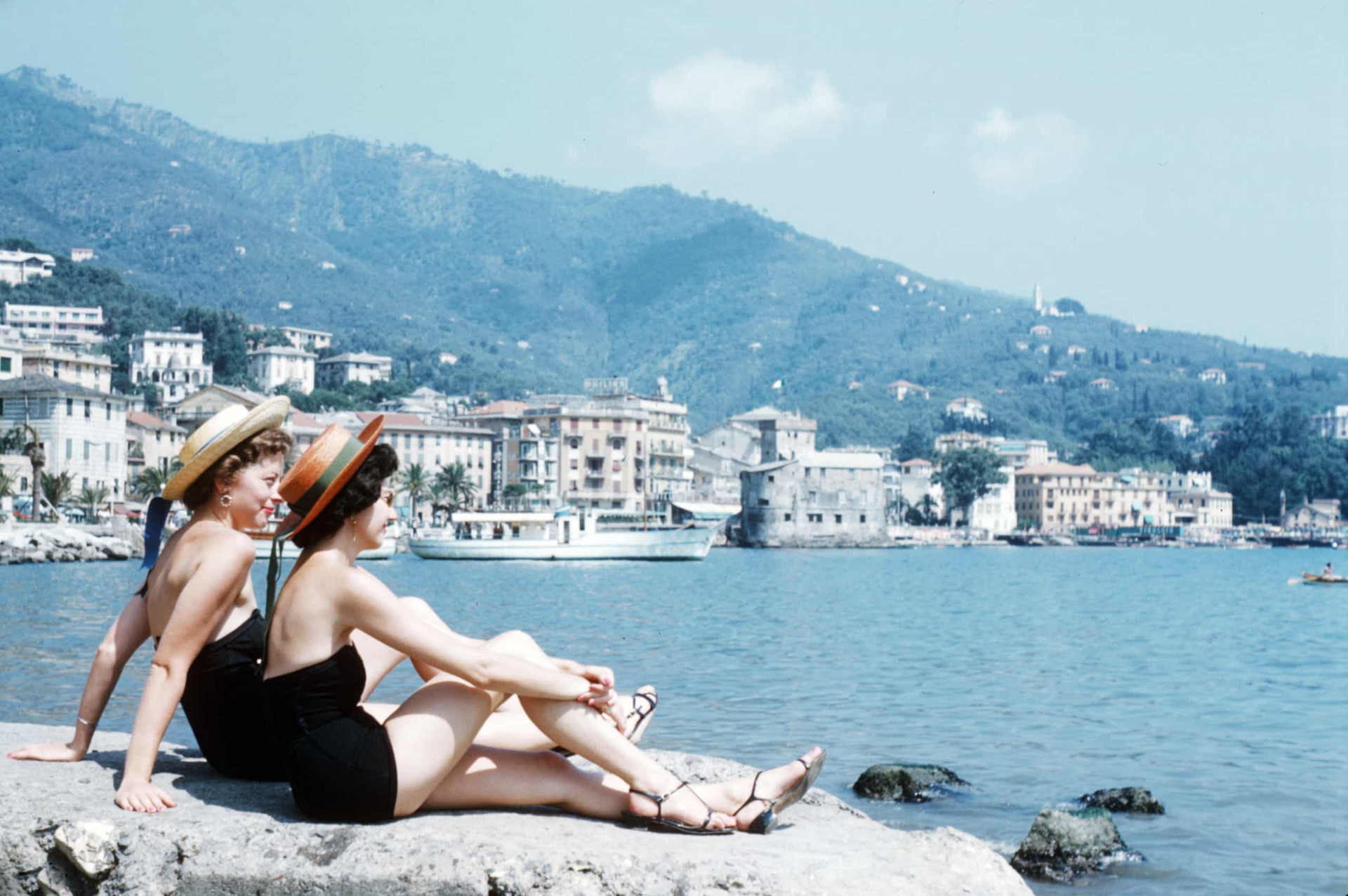
We often think that people only began traveling in the last few decades, but the truth is humanity has been traveling for centuries. From ancient Rome to the Middle Ages, we have always had a need to travel. Traveling for pleasure has come a long way since then, however, and it's largely attributed to technological developments in transport and road systems.
Want to discover the history of traveling for pleasure? Then check out this gallery.
You may also like:
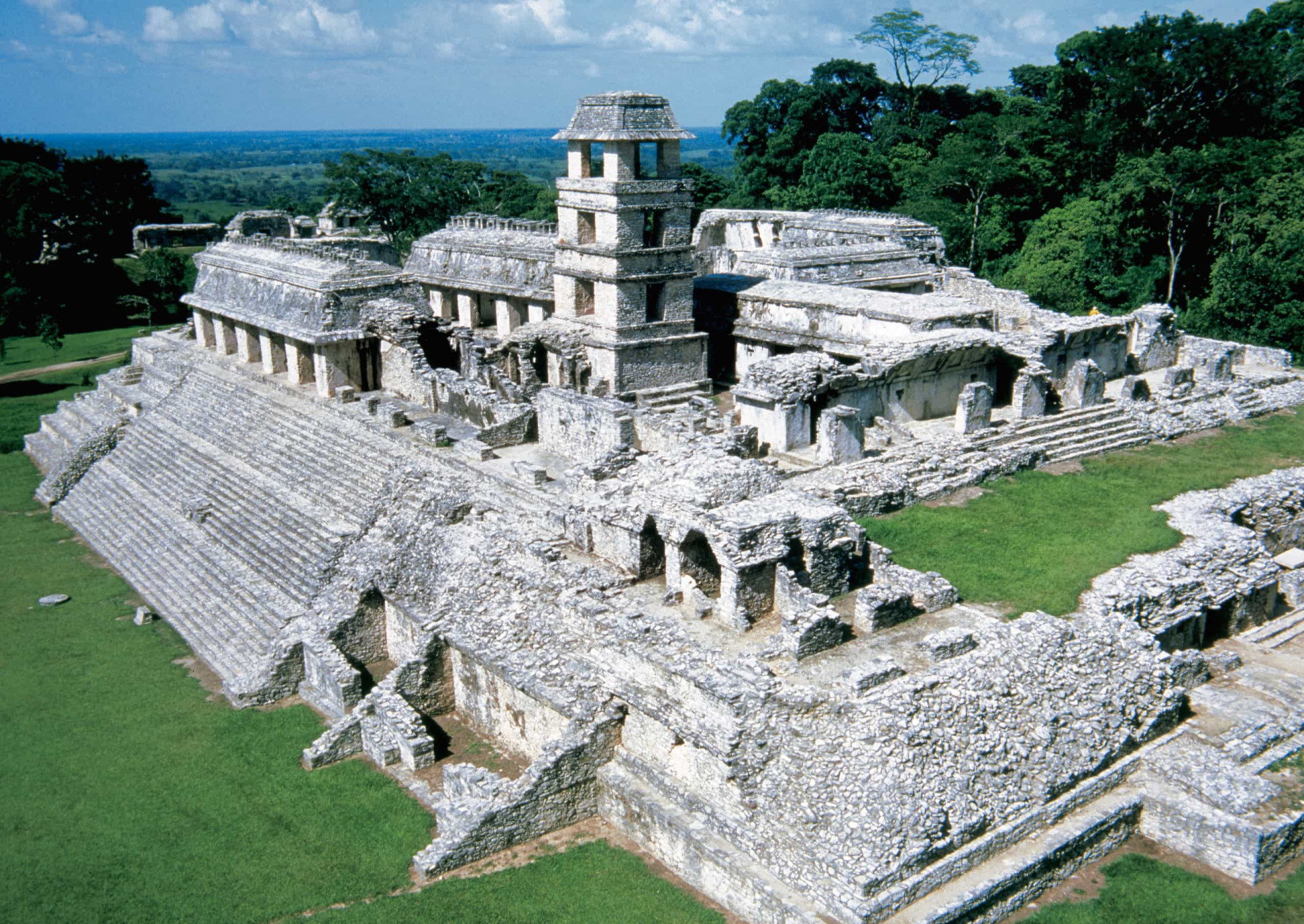
Ancient times
Traveling came about for many reasons. Throughout the world, cultures moved around in order to conquer other areas, as well as to control trade routes and various resources.
Follow us and access great exclusive content every day
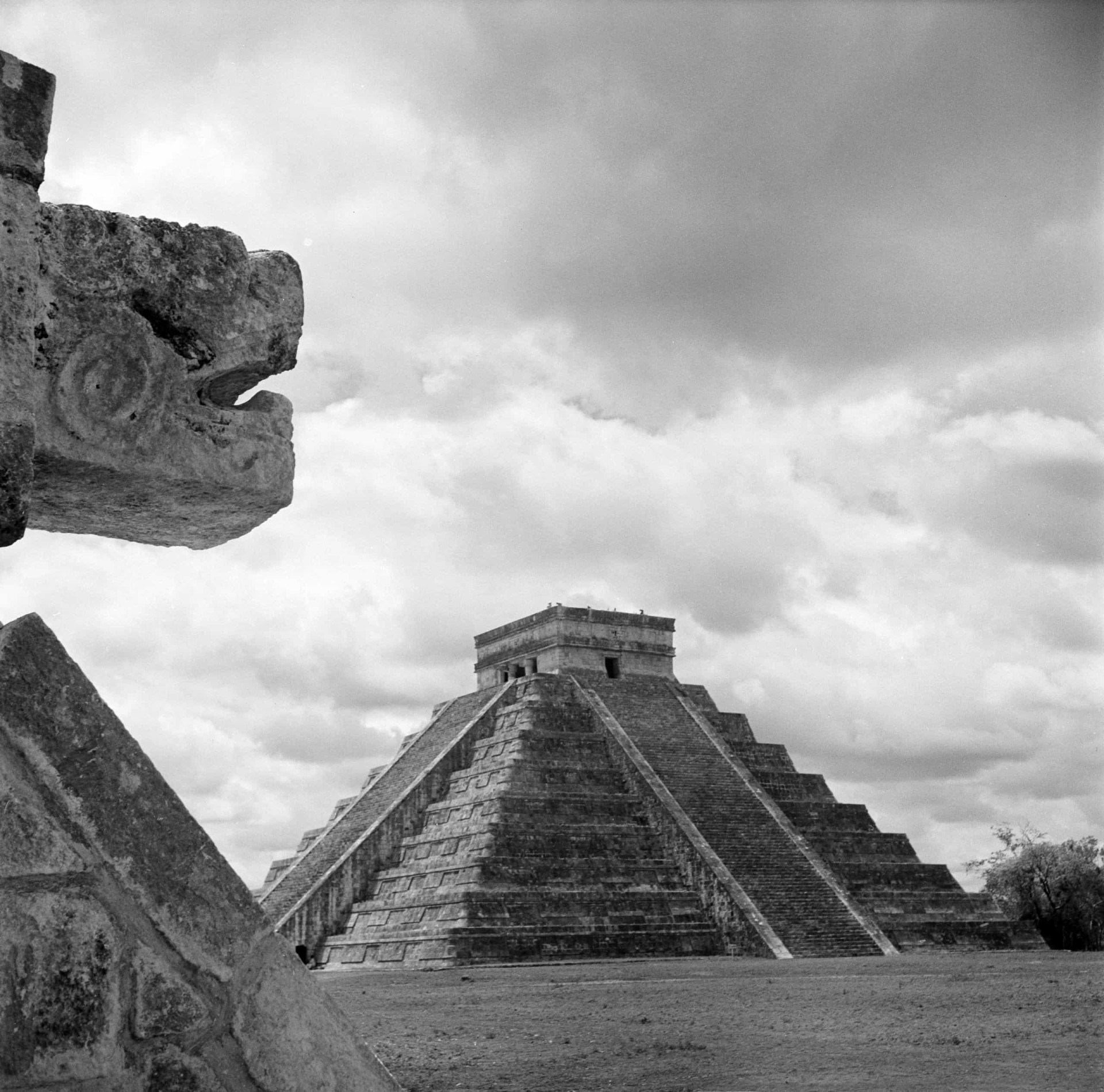
The Maya people went beyond their borders
The Mayas, who lived in modern-day Mexico , didn't only travel to see what was beyond their own borders—they also wanted to spread their civilization.
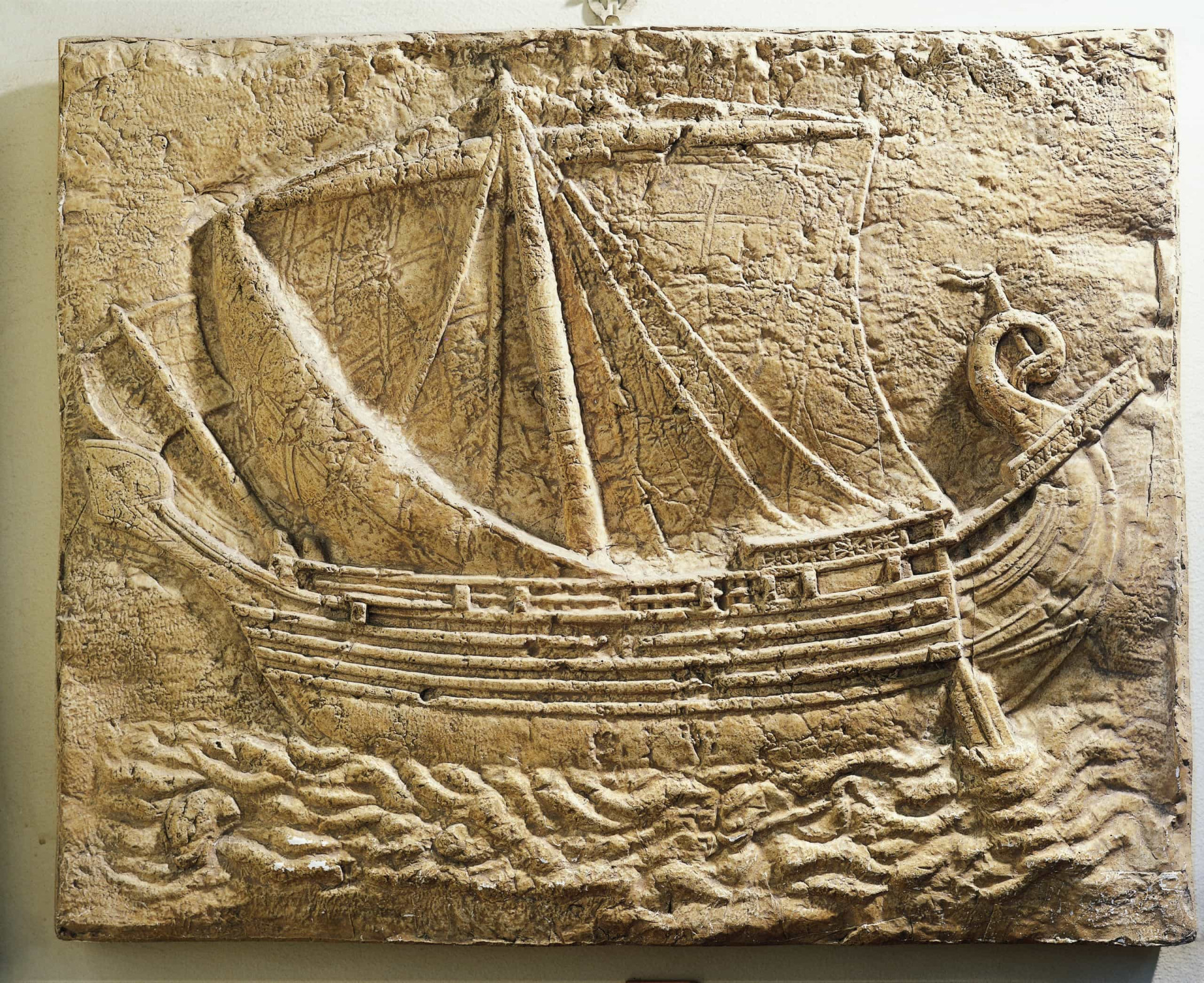
Travel for curiosity
The Phoenicians, a civilization that mainly lived in modern-day Lebanon around 2500–64 BCE, traveled not only to develop trade routes, but also due to curiosity. They had a desire to discover what laid beyond the Mediterranean Sea.
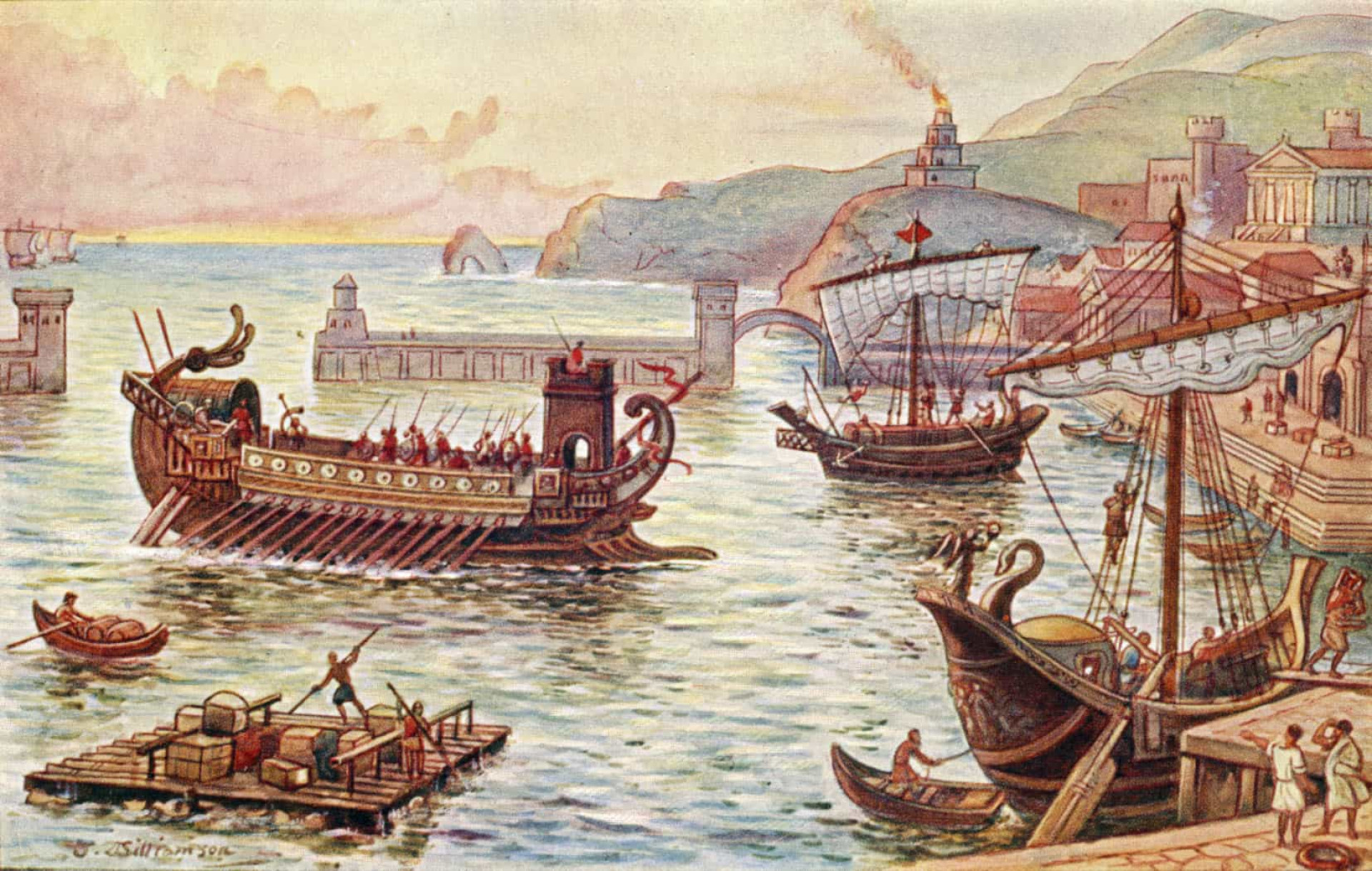
The empire era
It is hard to know exactly when travel turned into what we would define as tourism. However, the empire era, which included the Egyptians, Greeks, and Romans, was influential when it came to traveling.
You may also like: Bizarre facts about the death penalty
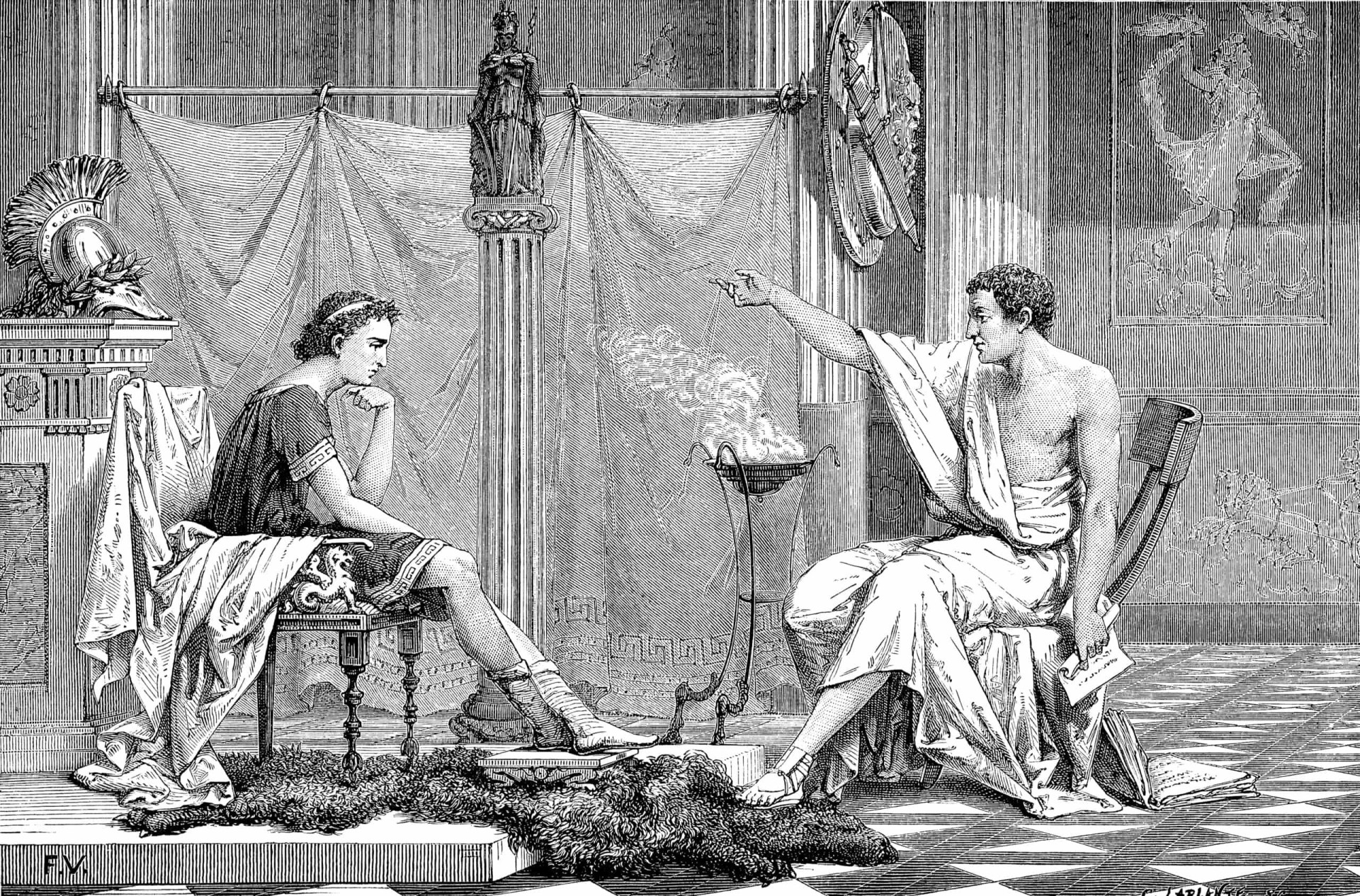
People traveled for various reasons, be it commercial, educational, governmental, or religious purposes. This was largely thanks to consolidated governments in different central locations across the Mediterranean.
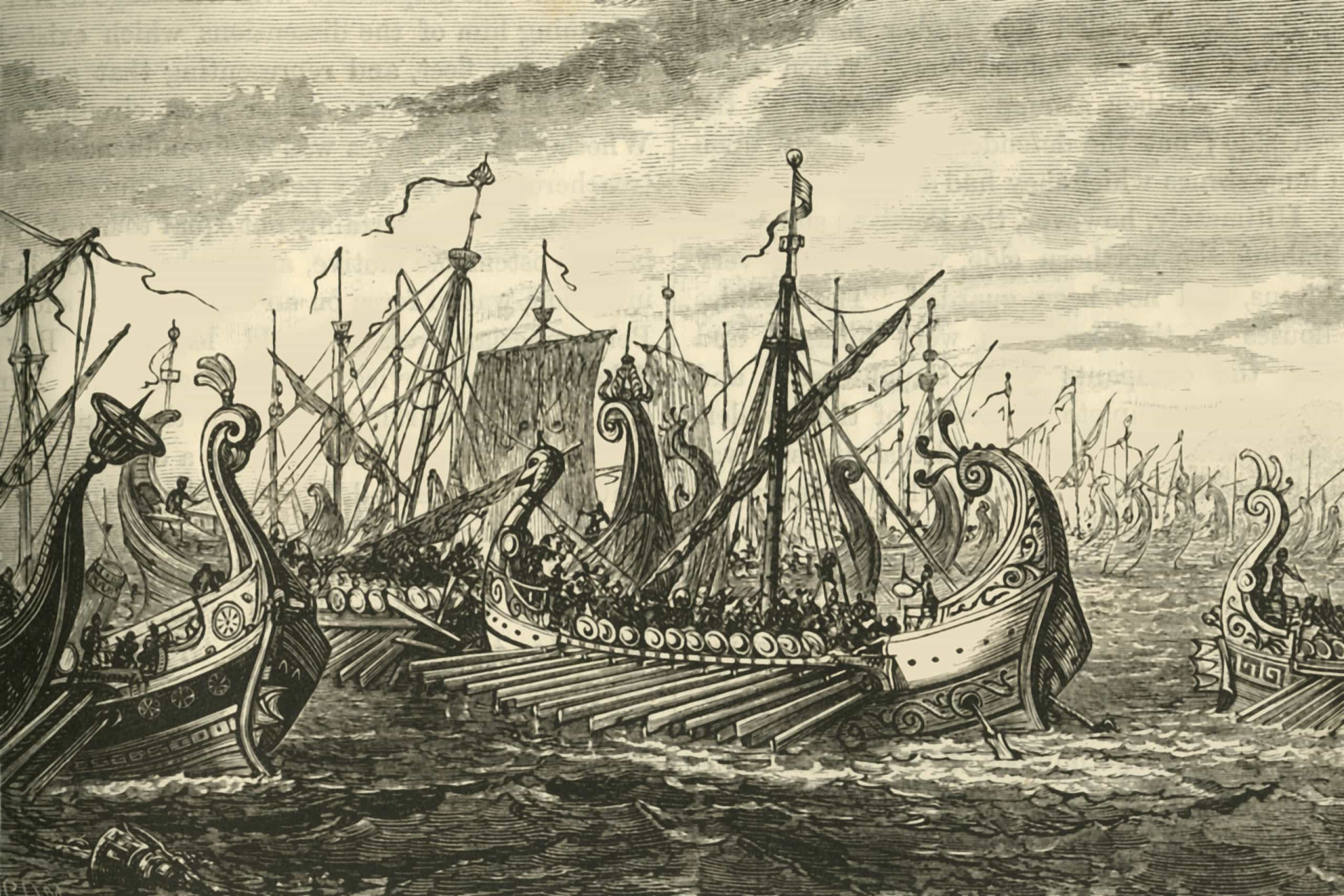
Traveling had a purpose
And due to consolidated governments, travel became a necessity to promote the use of a common language as well. Greek and Latin were the main ones.
You may also like: Aussie soap stars dominating Hollywood
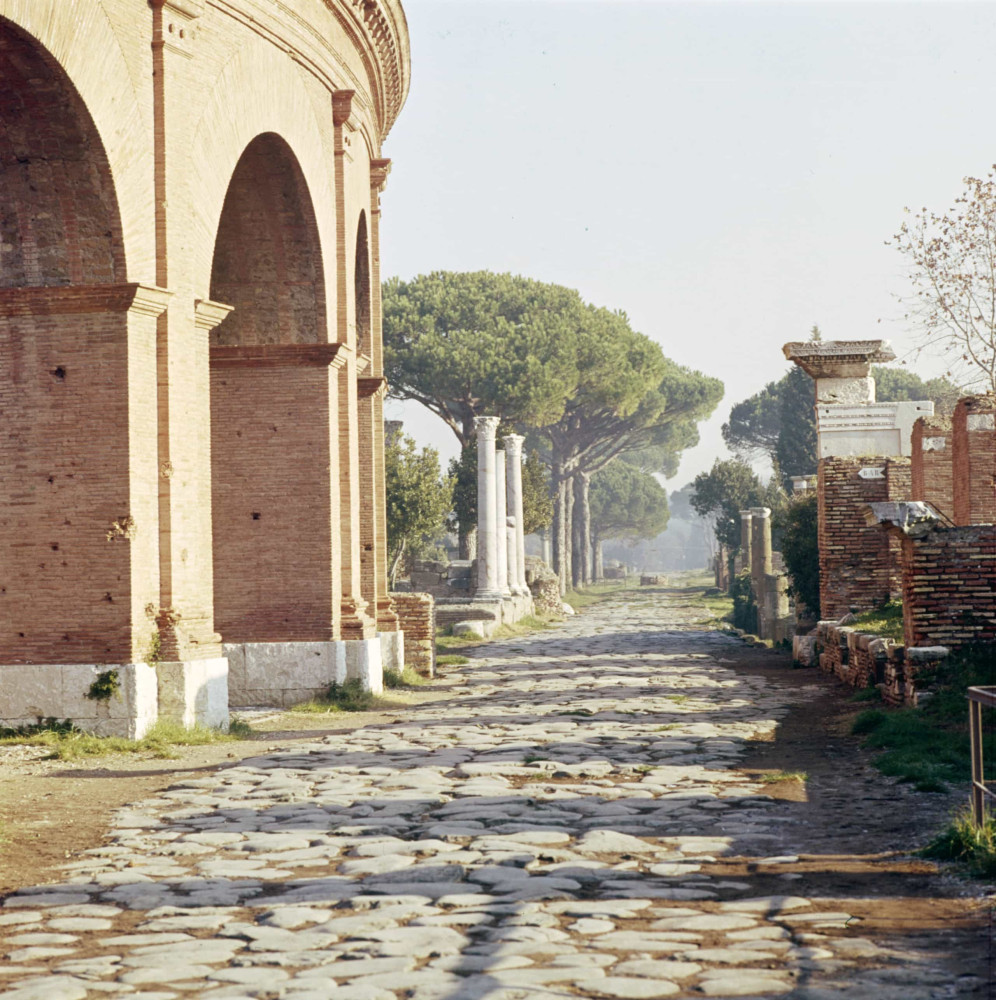
Romans and their roads
Travel evolved further with the ancient Romans. They constructed roads and even opened inns for travelers to rest at night.
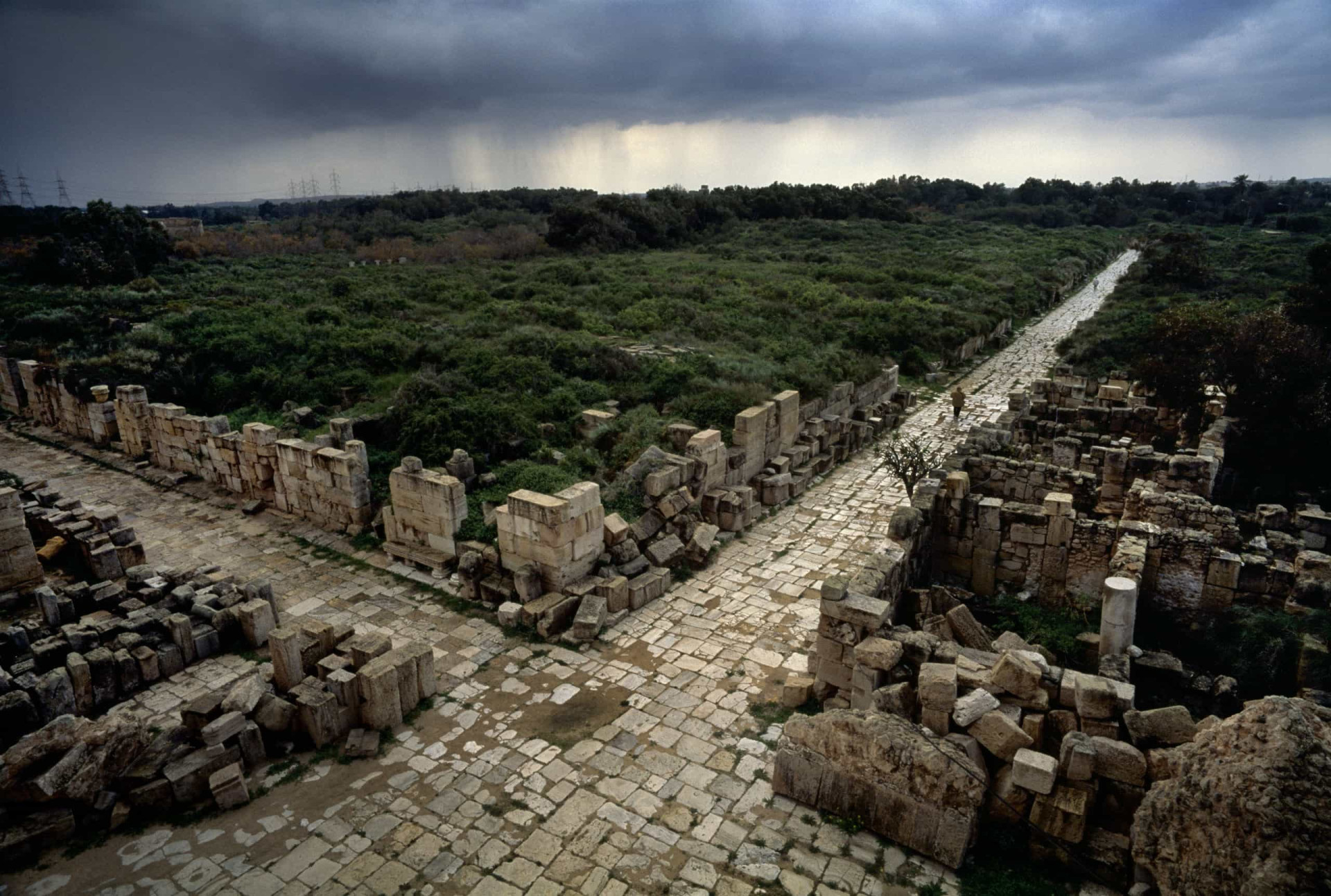
Cities throughout the Roman Empire, such as Pompeii, became destinations for the middle and upper classes to explore during their downtime. The roads helped them travel quickly and safely.
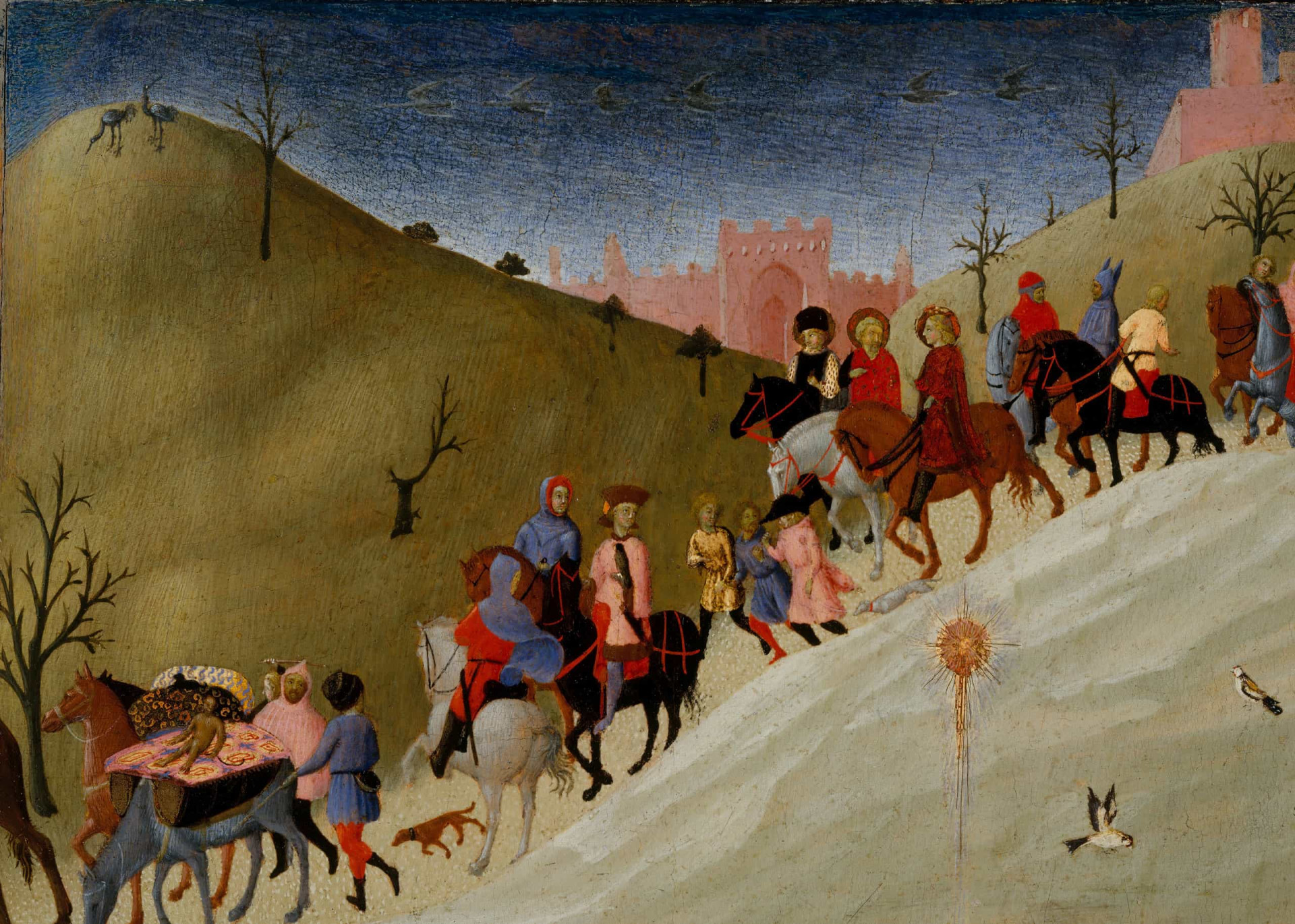
The Middle Ages and the Renaissance era
After the fall of the Roman Empire, travel became almost nonexistent and dangerous as regions had become autonomous.
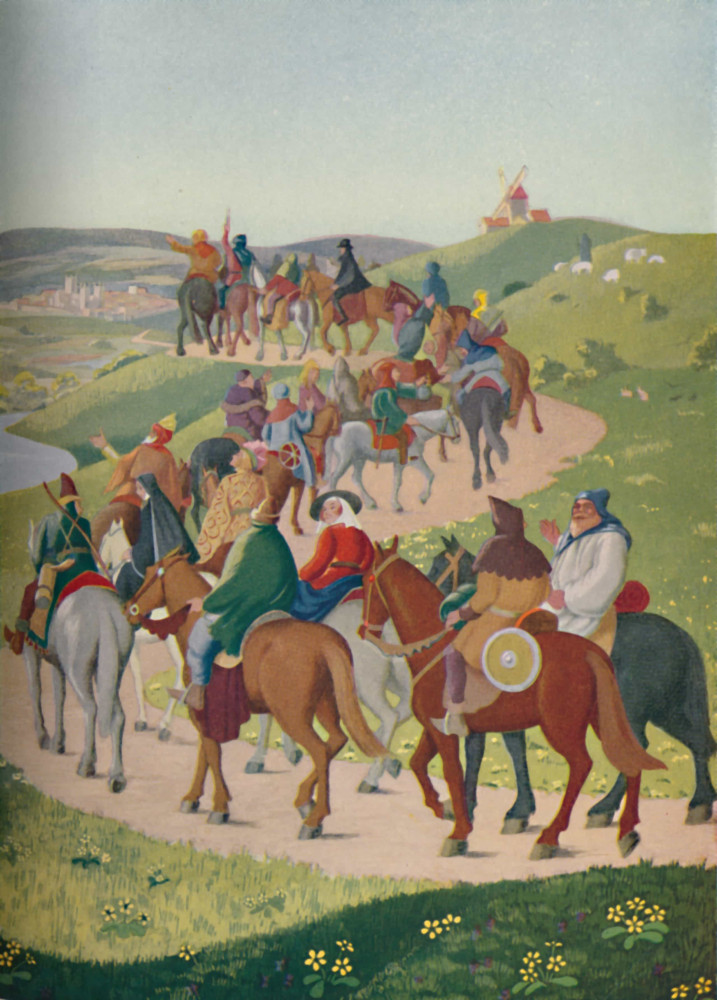
Religion was the center of life back in the Middle Ages. So when people traveled, it would often be to a sacred place nearby in the form of pilgrimage. This was also the time when the crusaders went out to take the Holy Land.
You may also like: Need to escape from the cold? Visit these warm US cities
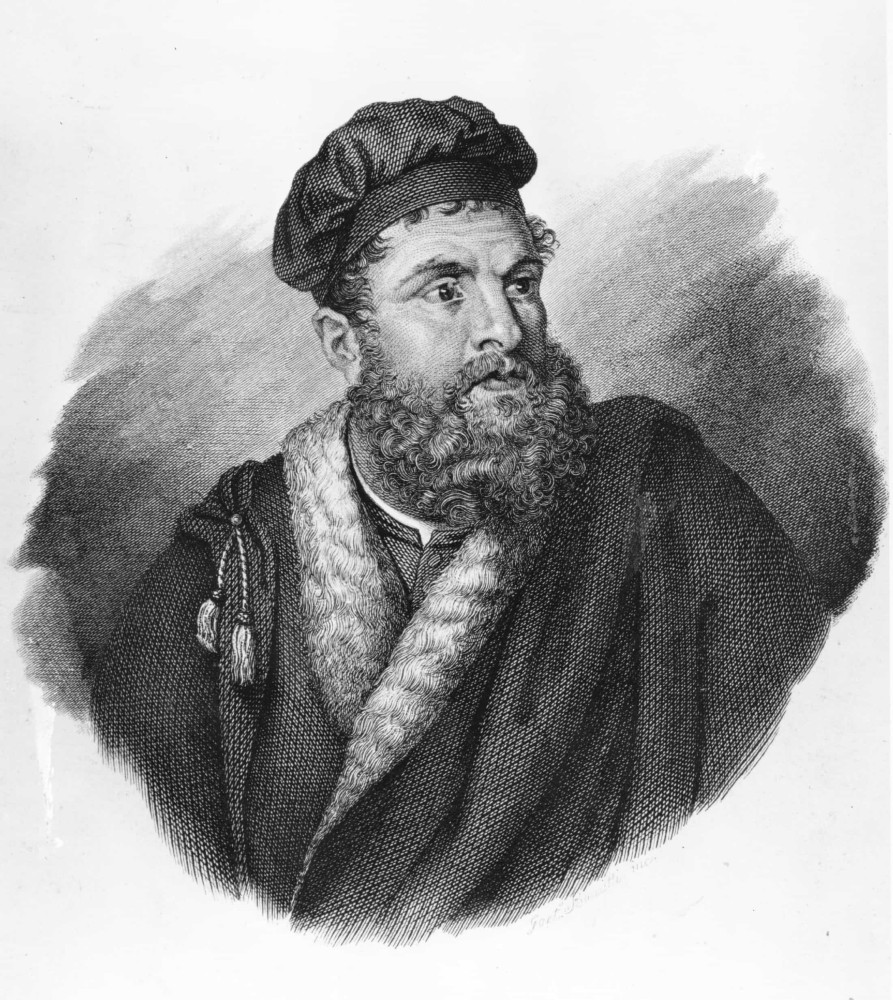
Merchants like Marco Polo started to travel far and wide after the failed crusades. His travels, particularly along the Silk Road between 1271 and 1295, awoke a new interest in traveling for others.

Cyriacus of Ancona
The first real tourist, according to historians, was Italian humanist and antiquarian Cyriacus of Ancona. He traveled around the Mediterranean, eager to learn about Greek and Roman history. This encouraged others to think about how travel could benefit education.
You may also like: The best red carpet looks of all time
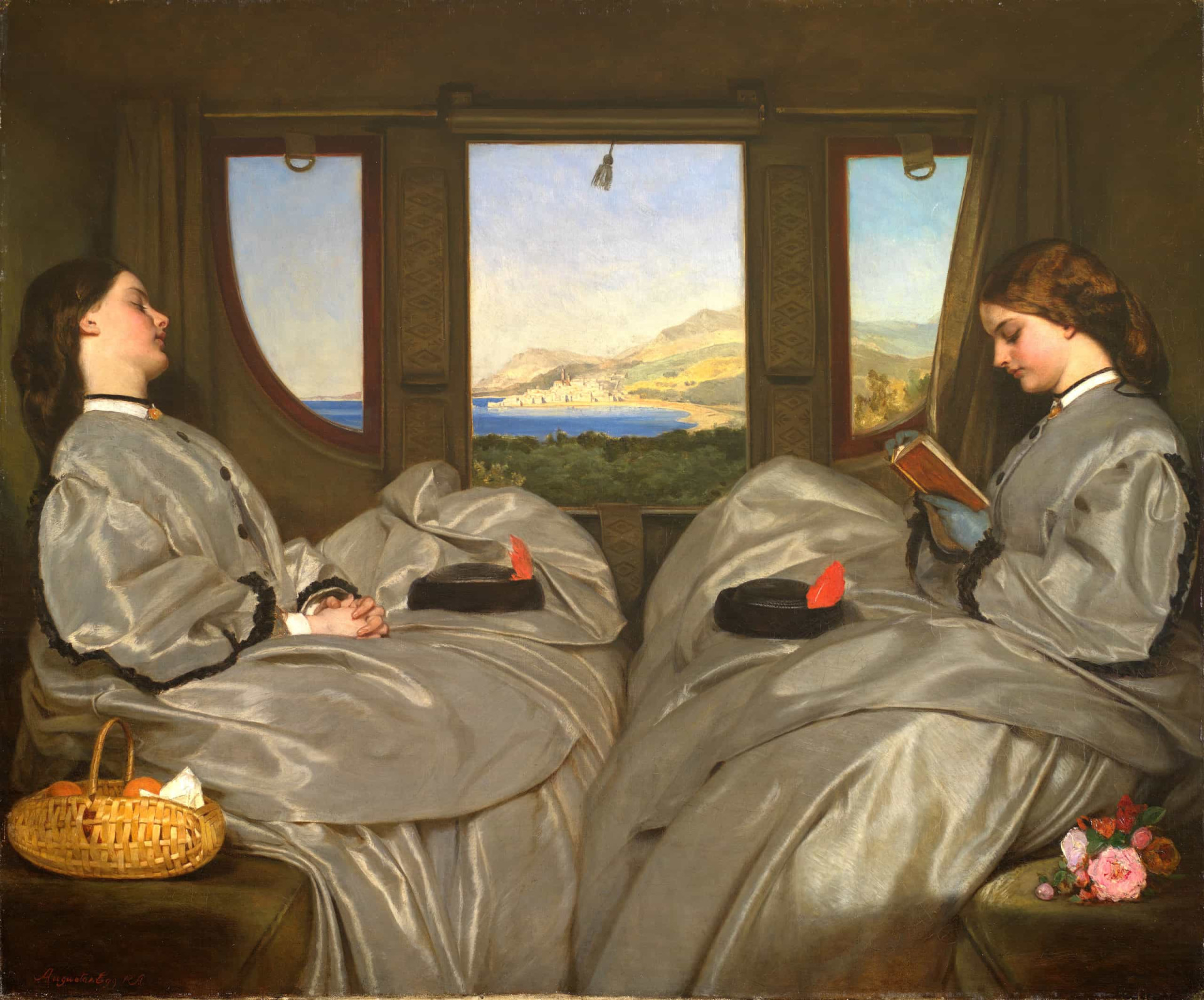

The Grand Tour era
The Grand Tour era (1613-1785) was when tourism as we know it today really came into play. Starting with the most wealthy in society, people traveled to learn.
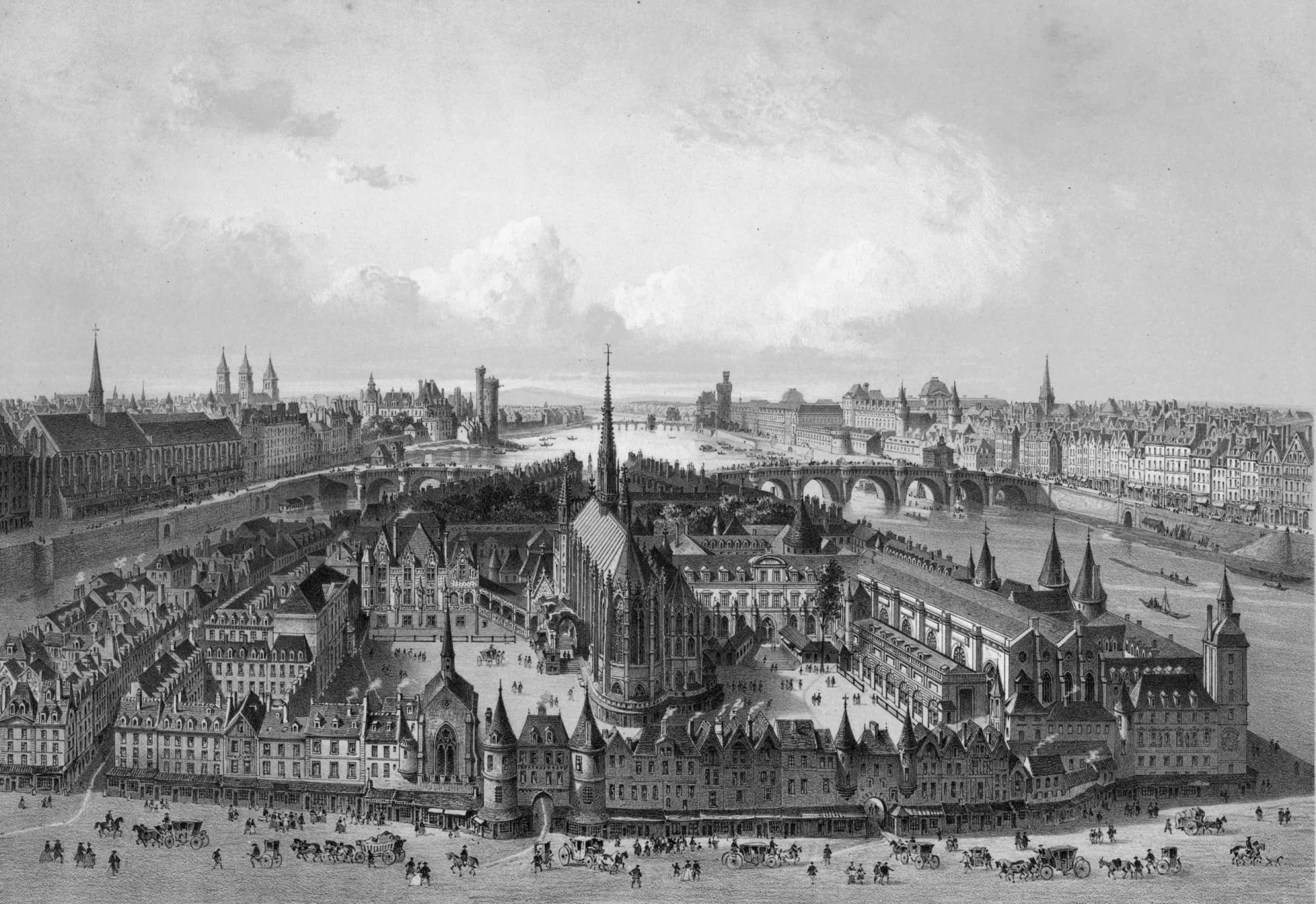
Tour around Europe
Those who were "coming of age" would travel throughout Europe to see art, architecture, and science. The most popular destinations were France, Switzerland, Germany, and Italy.
You may also like: Oymyakon: the coldest inhabited place on Earth
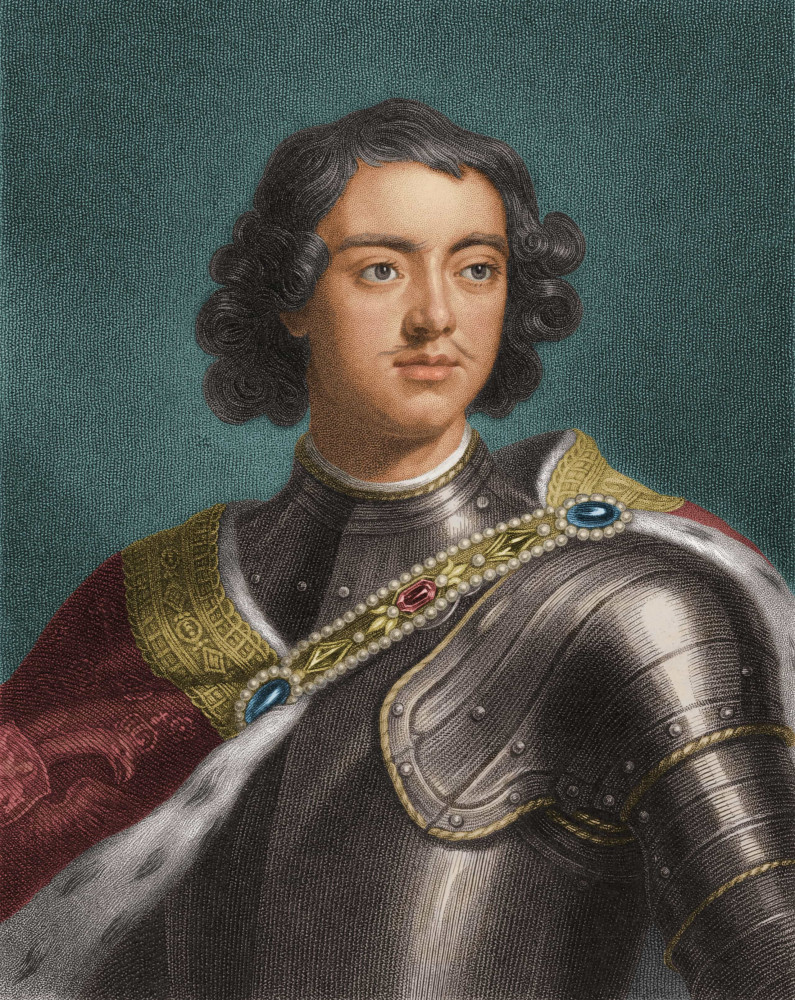
Peter the Great of Russia
One famous young aristocrat who traveled around Western Europe was Peter the Great of Russia. He spent a significant amount of his time in the Netherlands.
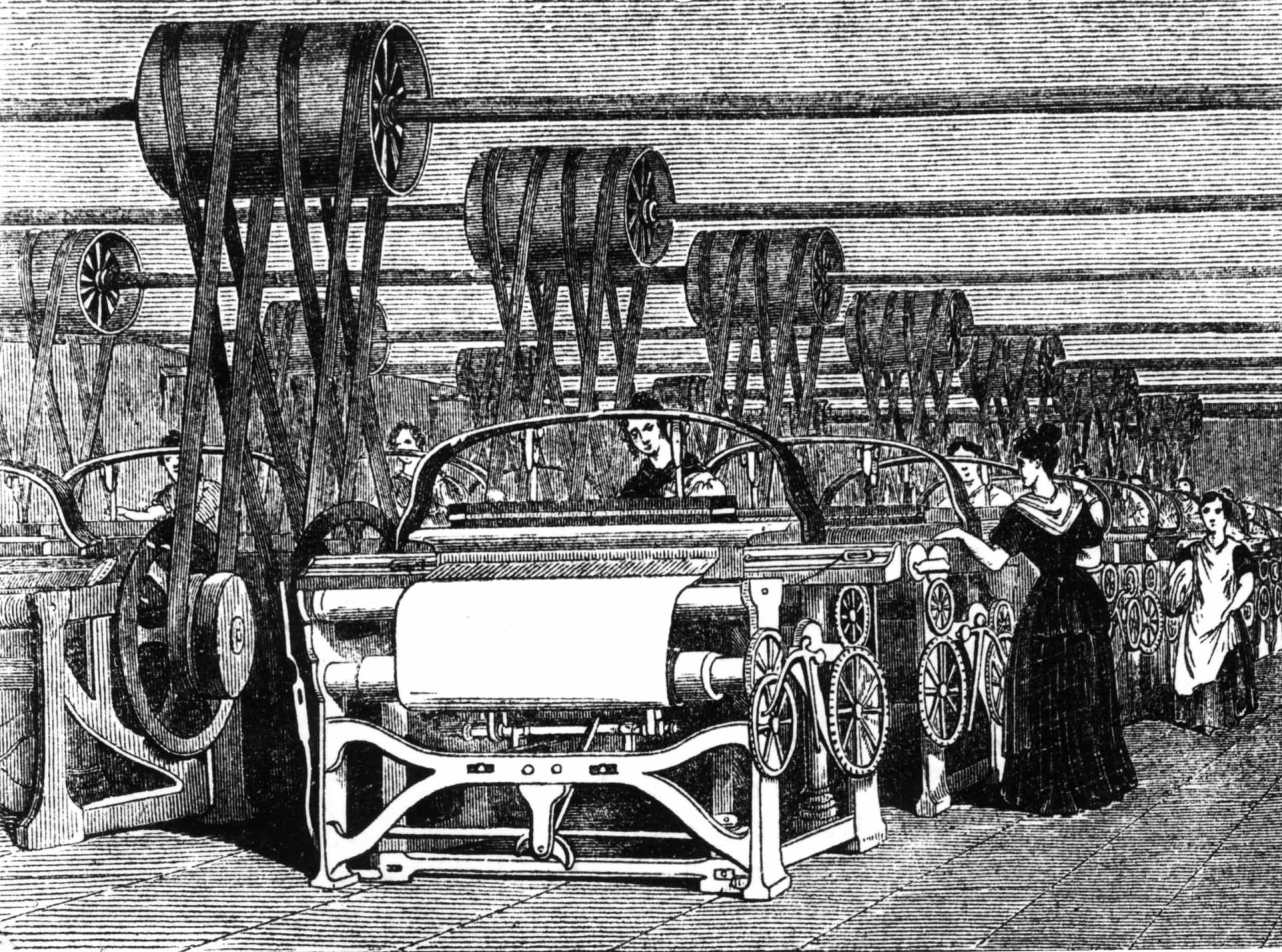
Changing times with the Industrial Revolution
The Industrial Revolution, which began in the second half of the 18th century, resulted in a major economic, social, and technological transformation.
You may also like: The best road trip route through the Southern United States
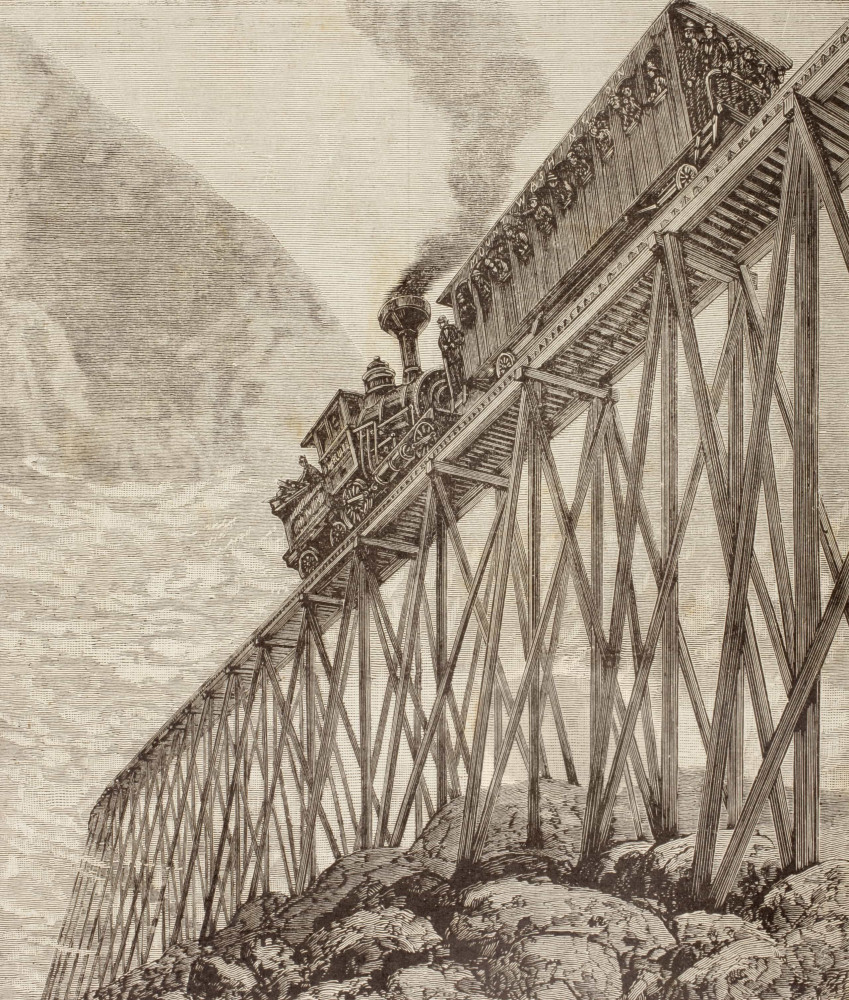
The mobility era
As time moved on, an extensive network of railways was built, making travel for leisure a reality for many. The mobility era (1800-1944) was defined by an increase in travel to new locations, both near and far.
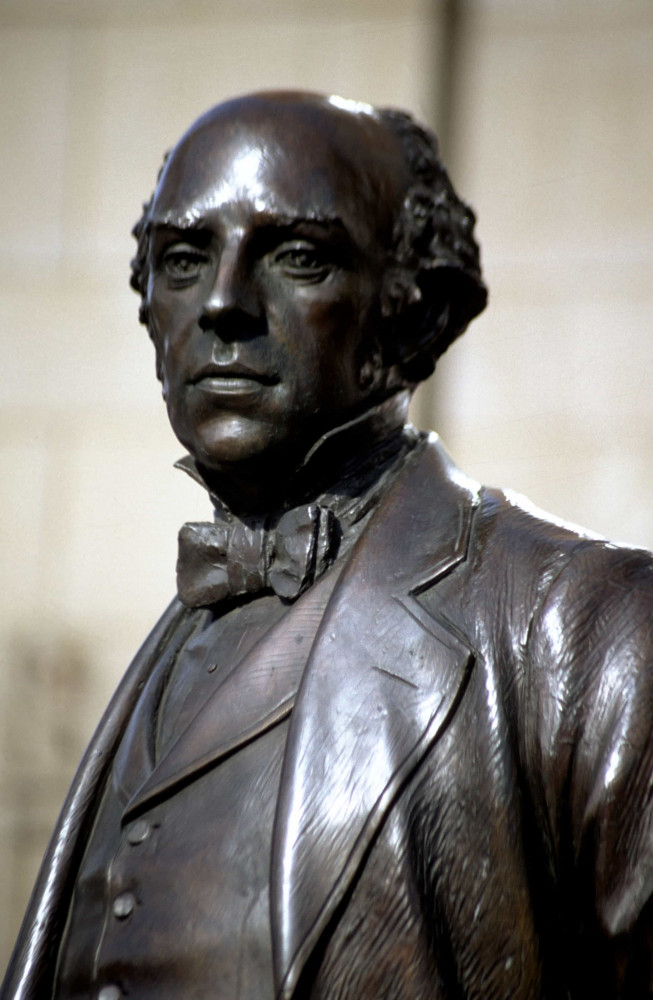
Thomas Cook
English businessman Thomas Cook was the first to introduce tour packages, which included travel and accommodation. In 1841, he arranged a tour for around 570 people to travel from Loughborough to Leicester. There was an instant demand for more.
You may also like: Facts you never knew about Winston Churchill
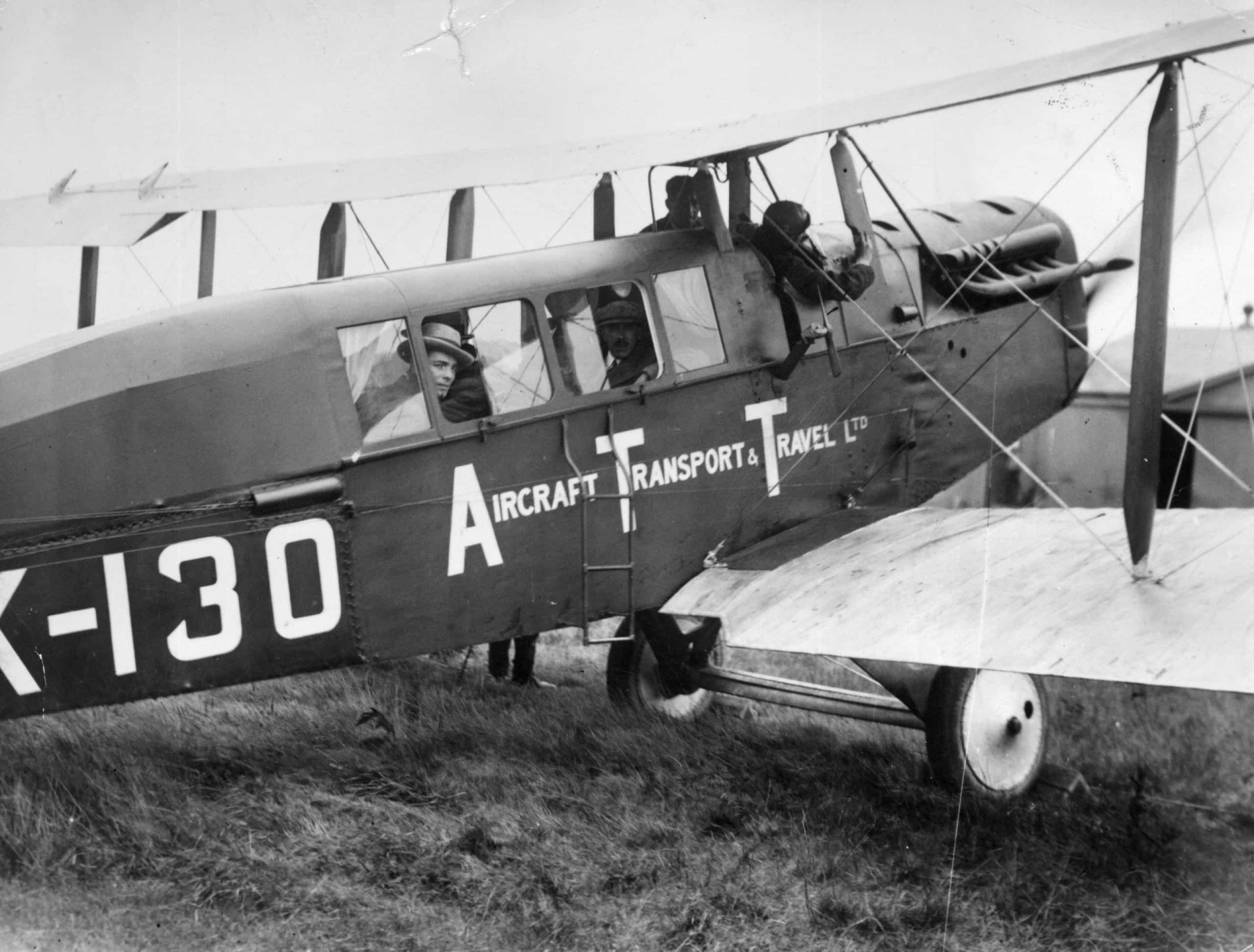
The first scheduled international passenger flight
On August 25, 1919, the first regular international passenger air service took place between London and Paris. This represented a new era in commercial flying.
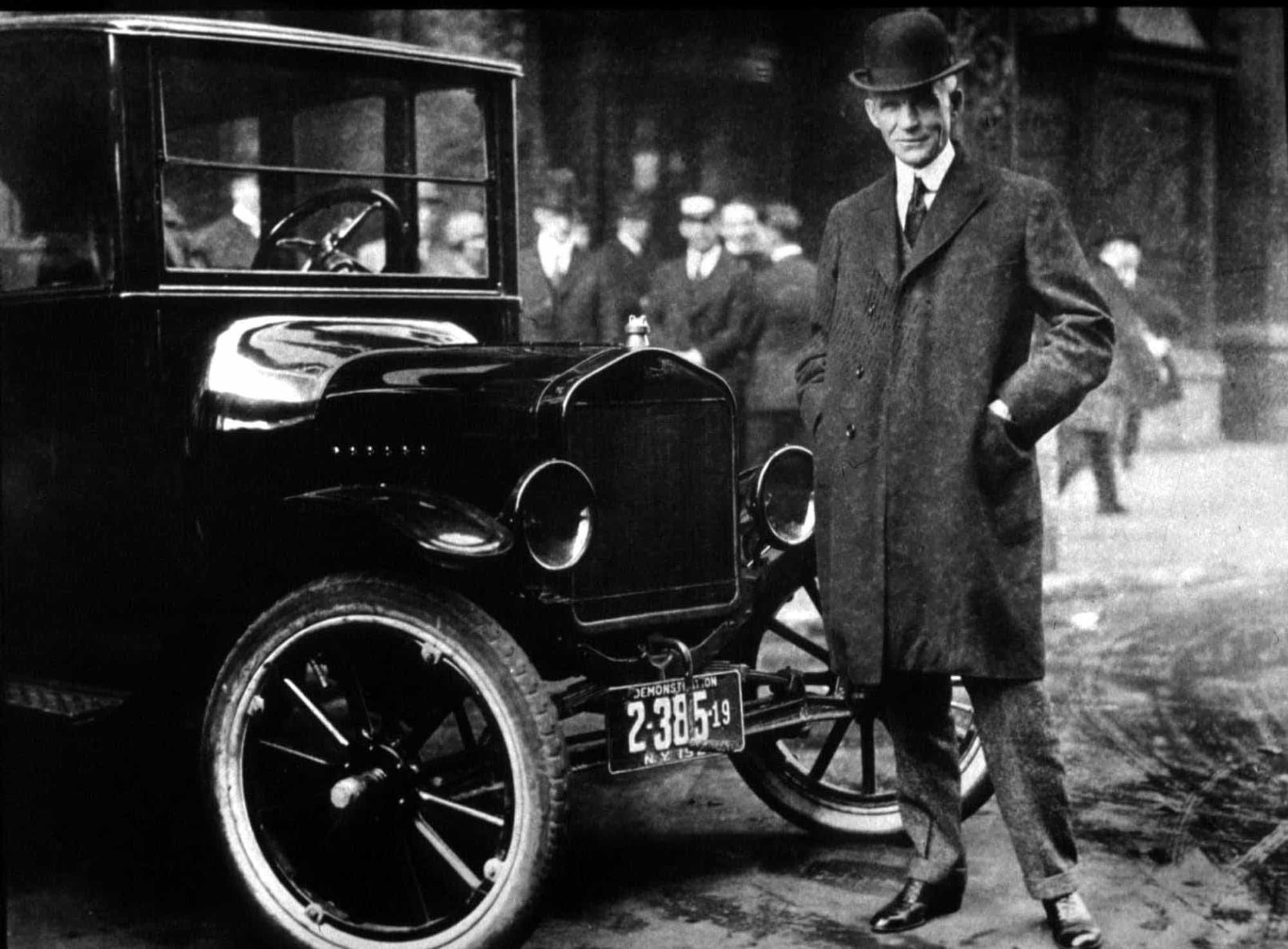
Mass production of cars
With Henry Ford’s mass production of the Model T in 1914, individuals had more freedom to travel. It was a revolution when it came to transportation.
You may also like: Facts you couldn't have imagined about Thomas Edison
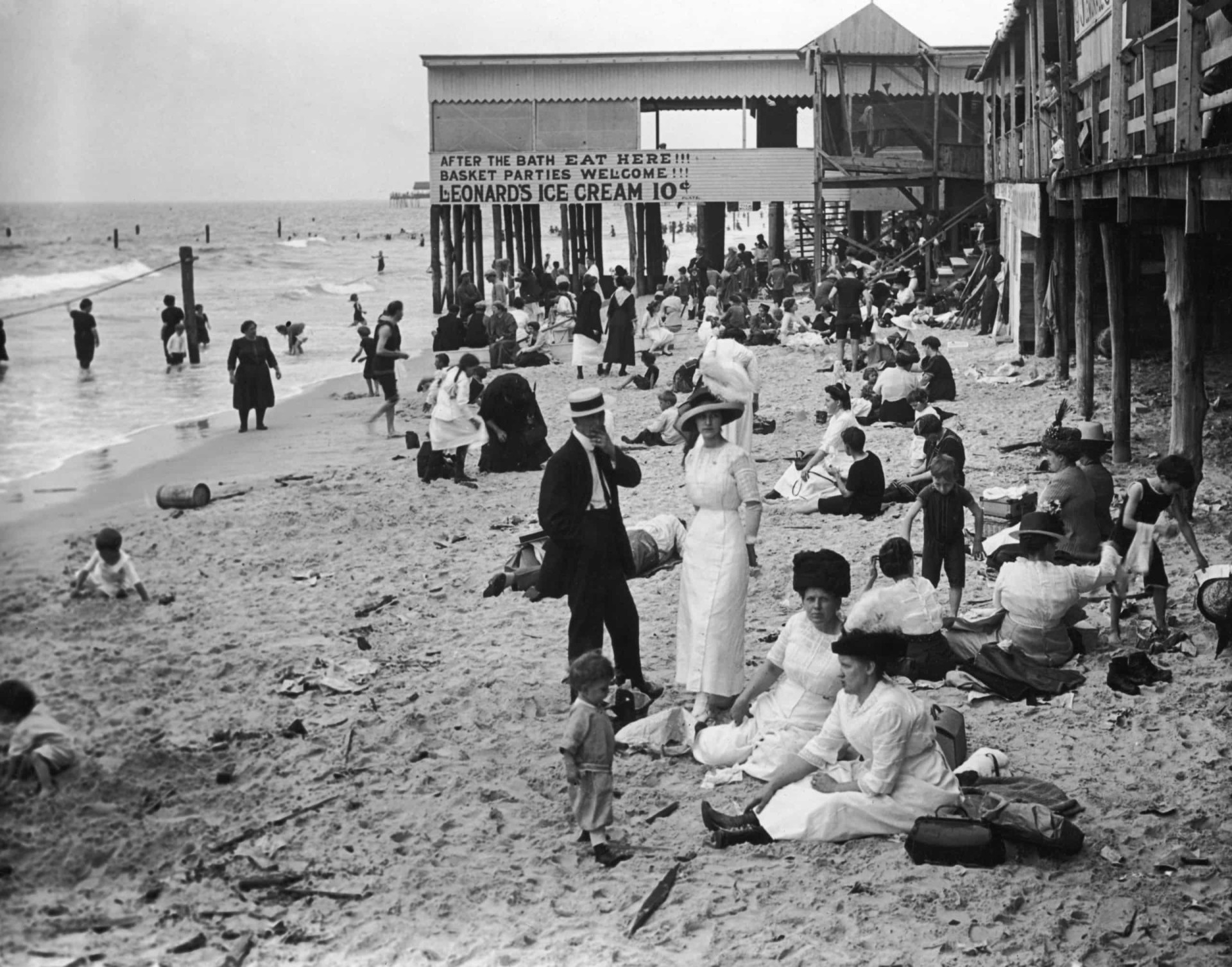
Coastal tourism
Thanks to the mass production of cars as well as buses, the tourism industry continued to grow. Coastal tourism would rise in popularity after WWI, with people wanting to visit the seaside.
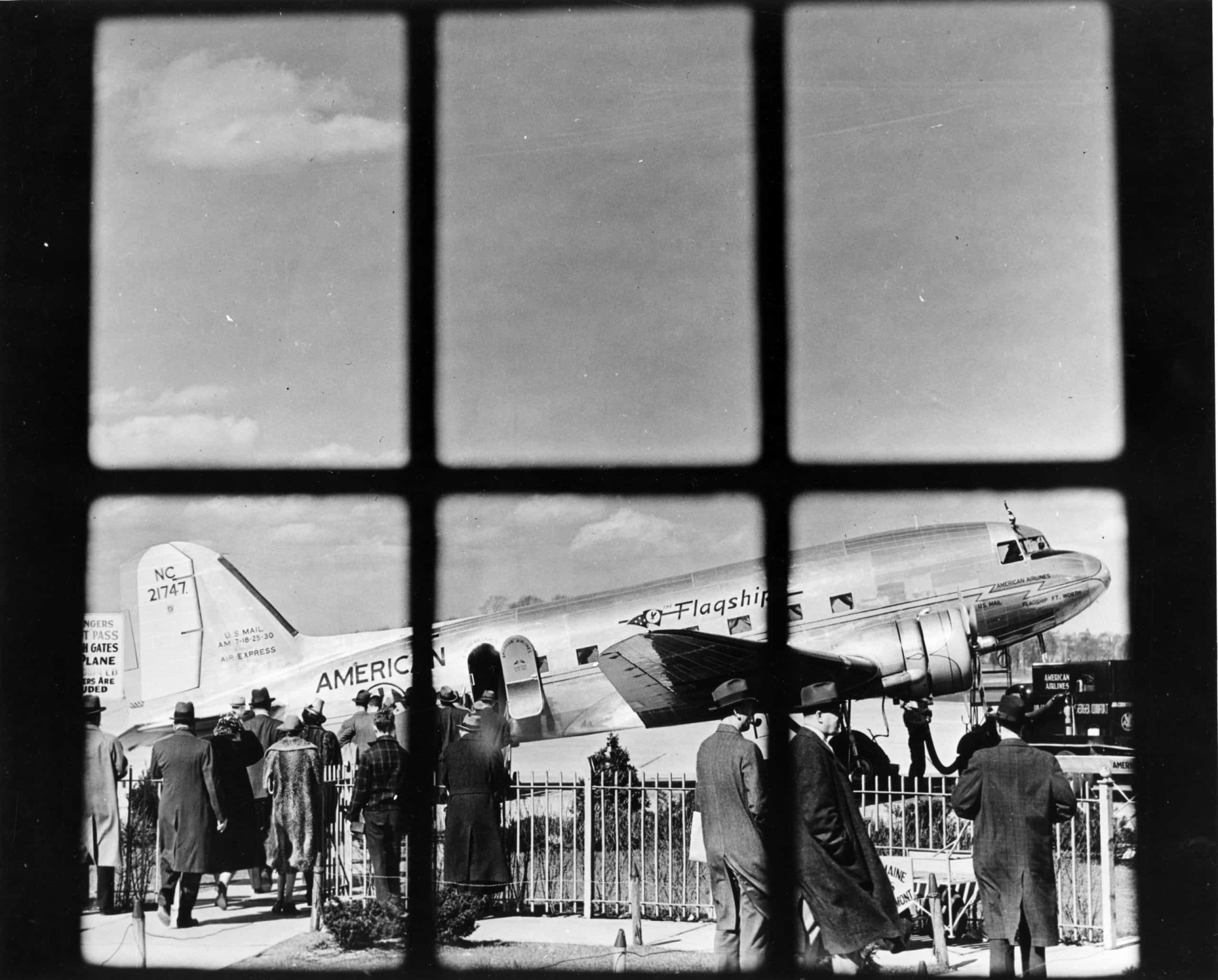
The modern era
The modern era of tourism saw a boom in commercial air travel. This meant the time it took to travel long distances was much shorter, encouraging people to discover the world.
You may also like: Gun control laws: celebrities who are either for or against stricter legislation
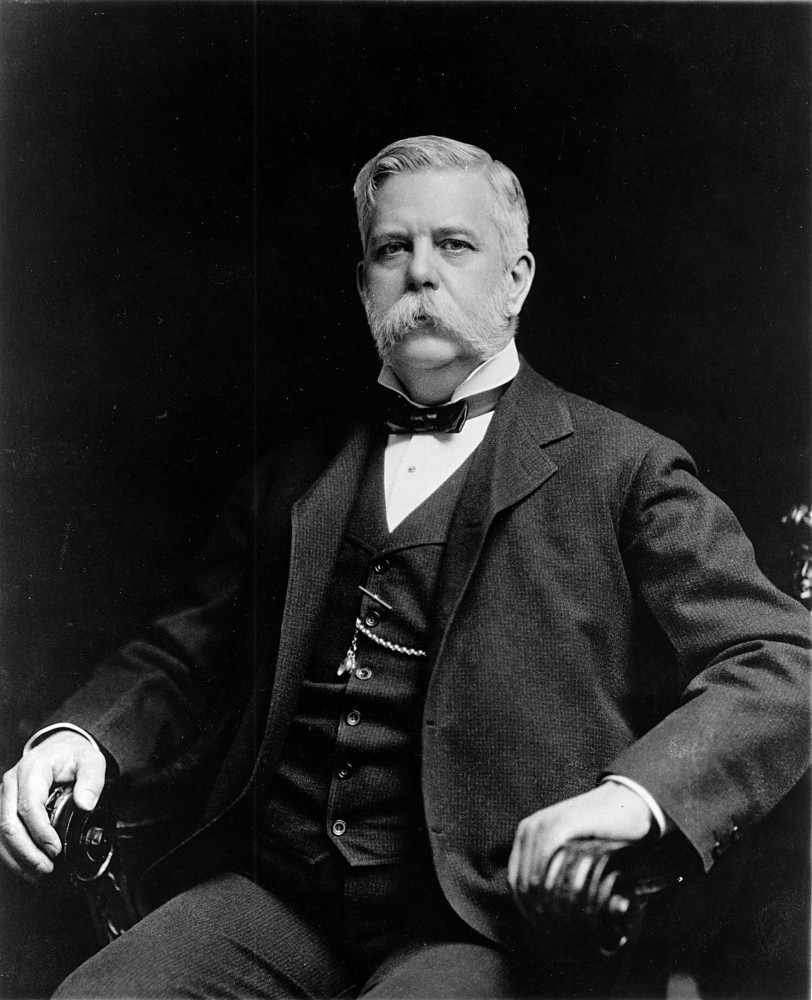
George Westinghouse
American entrepreneur and engineer George Westinghouse introduced the idea of paid leave from work. He believed that allowing staff paid time off would be beneficial to productivity levels overall. This gave the working and middle classes in certain countries the time and money to travel.
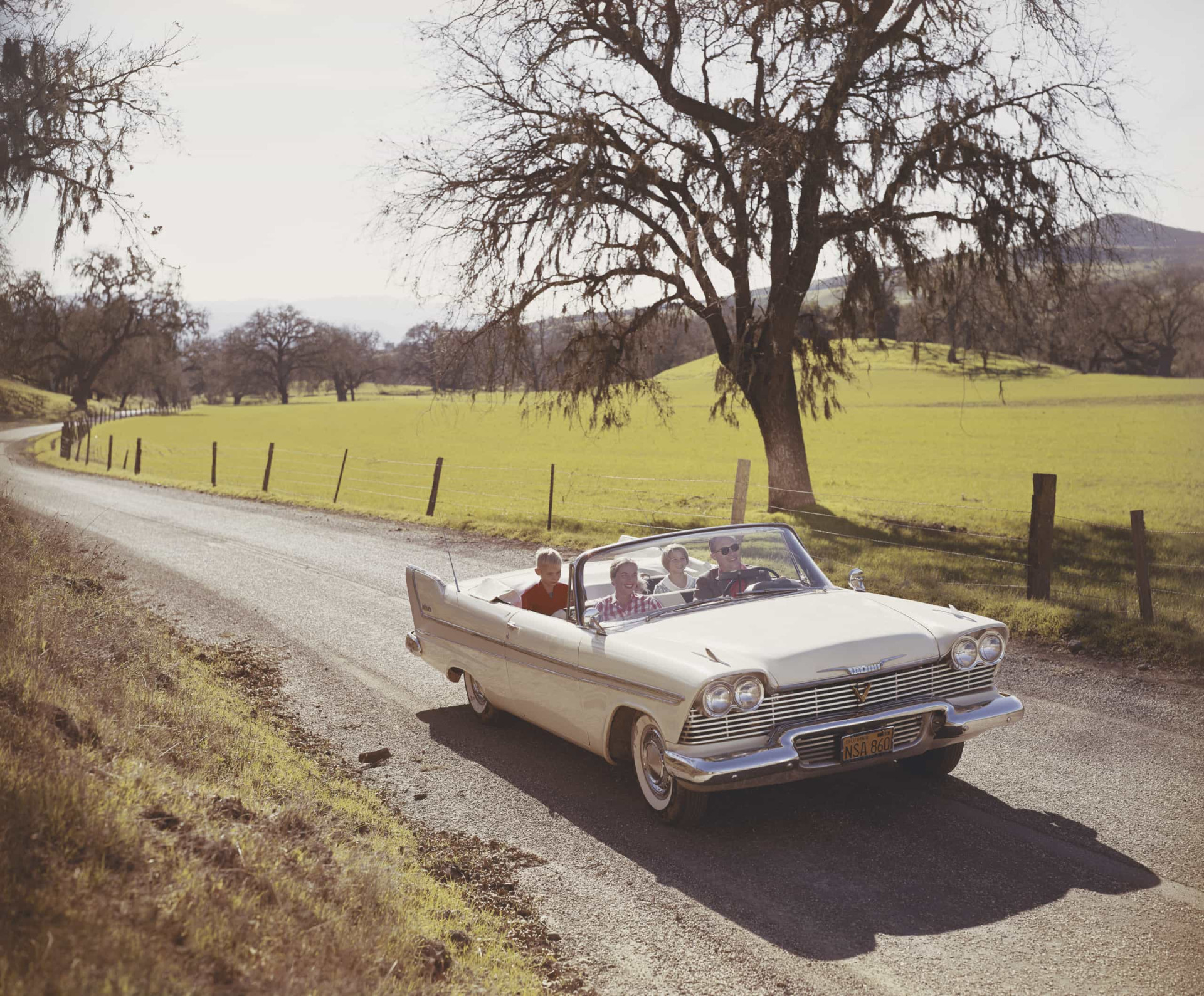
Post-war travel
With gas no longer rationed after WWII, economies started growing and cars became mass-produced again. Especially in the US, people started traveling around in their vehicles, which resulted in the motel business taking off as well.

A boom in hotels and motels
Many factors contributed to the exponential growth of the travel industry. For example, in the 1950s, hotels and motels took to the franchising model of business expansion.
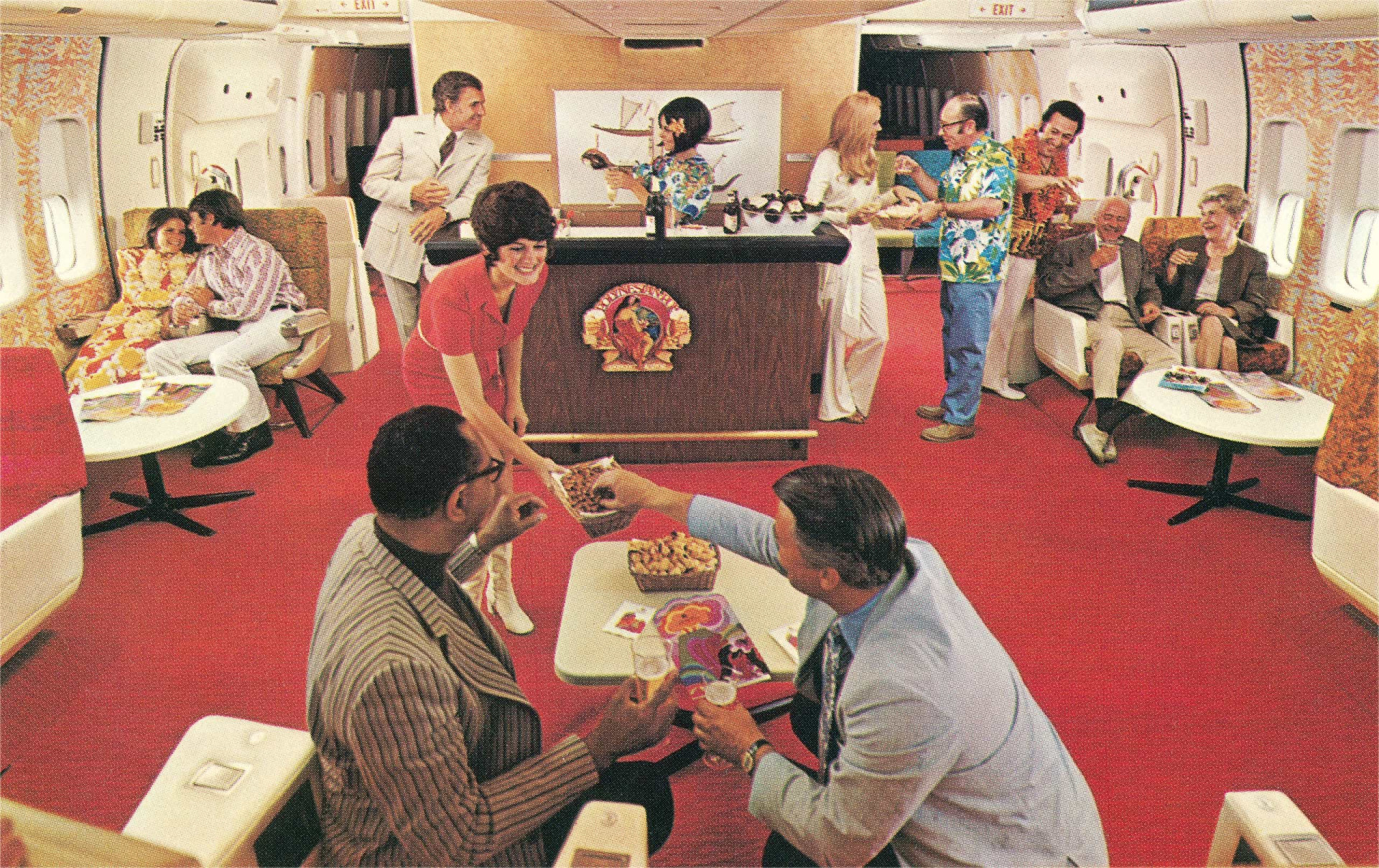
Introduction of the credit card
The 1950s also saw the introduction of the credit card, originally the Diners Club card. This provided travelers the means to buy things wherever they were without the hassle of currency exchange and carrying cash.
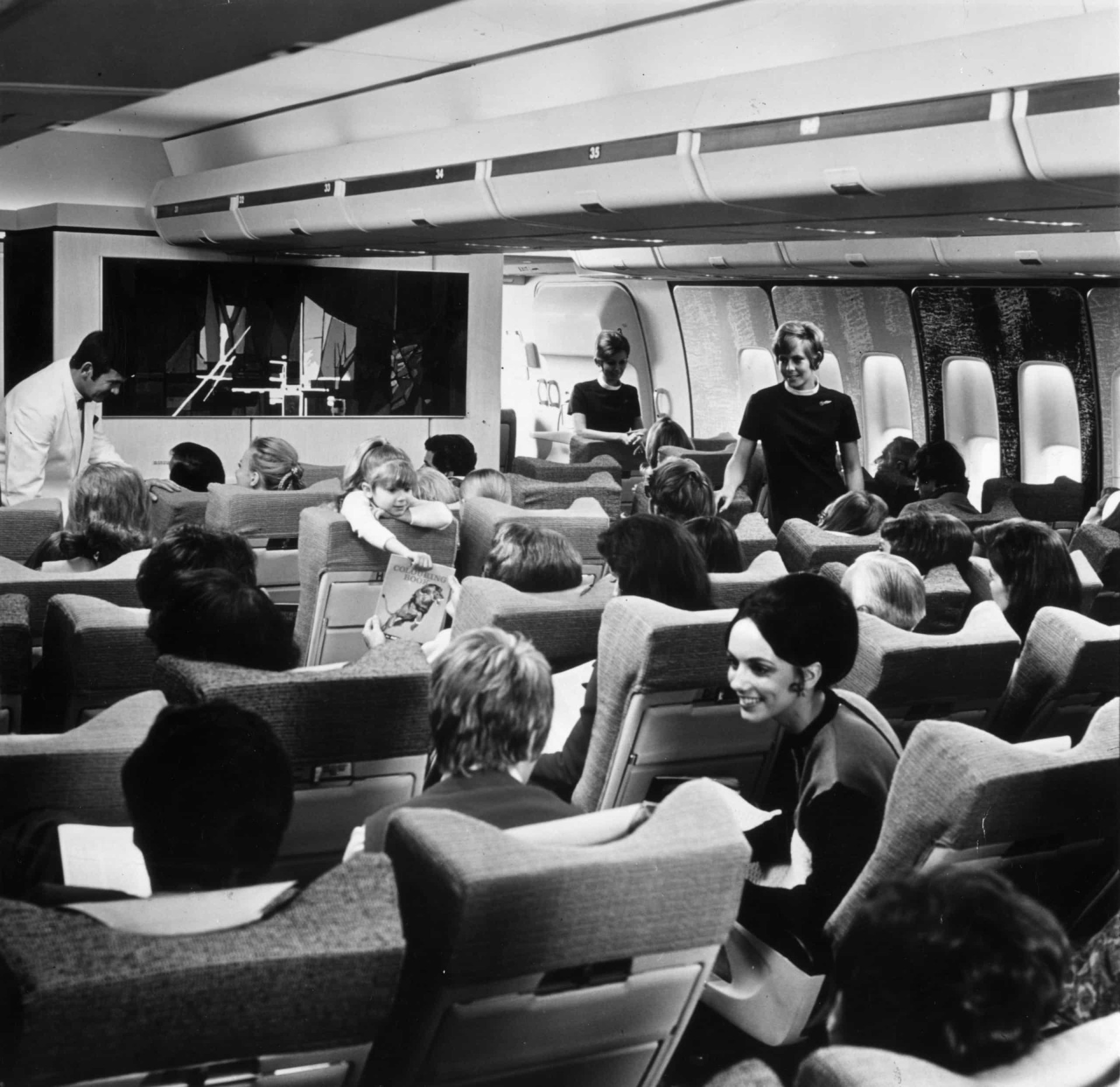
The emergence of mass tourism
The tourism sector suffered a recession during the 1970s, mainly due to the energy crisis, leading to lower costs and prices. That's when mass tourism emerged and traveling became a leisure activity within the reach of many.
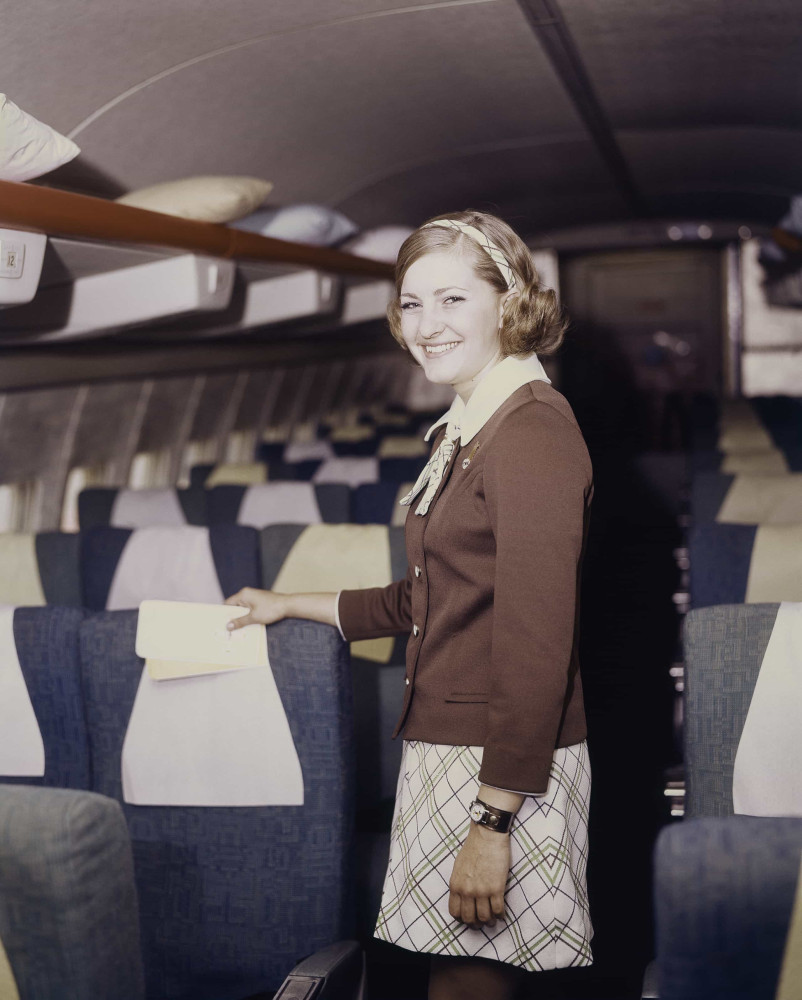
New era of tourism
In the following decades, there was a progressive internationalization of hotel companies, travel agencies, and airlines. Sports and spa activities were also offered.
You may also like: Can you name these successful actors?
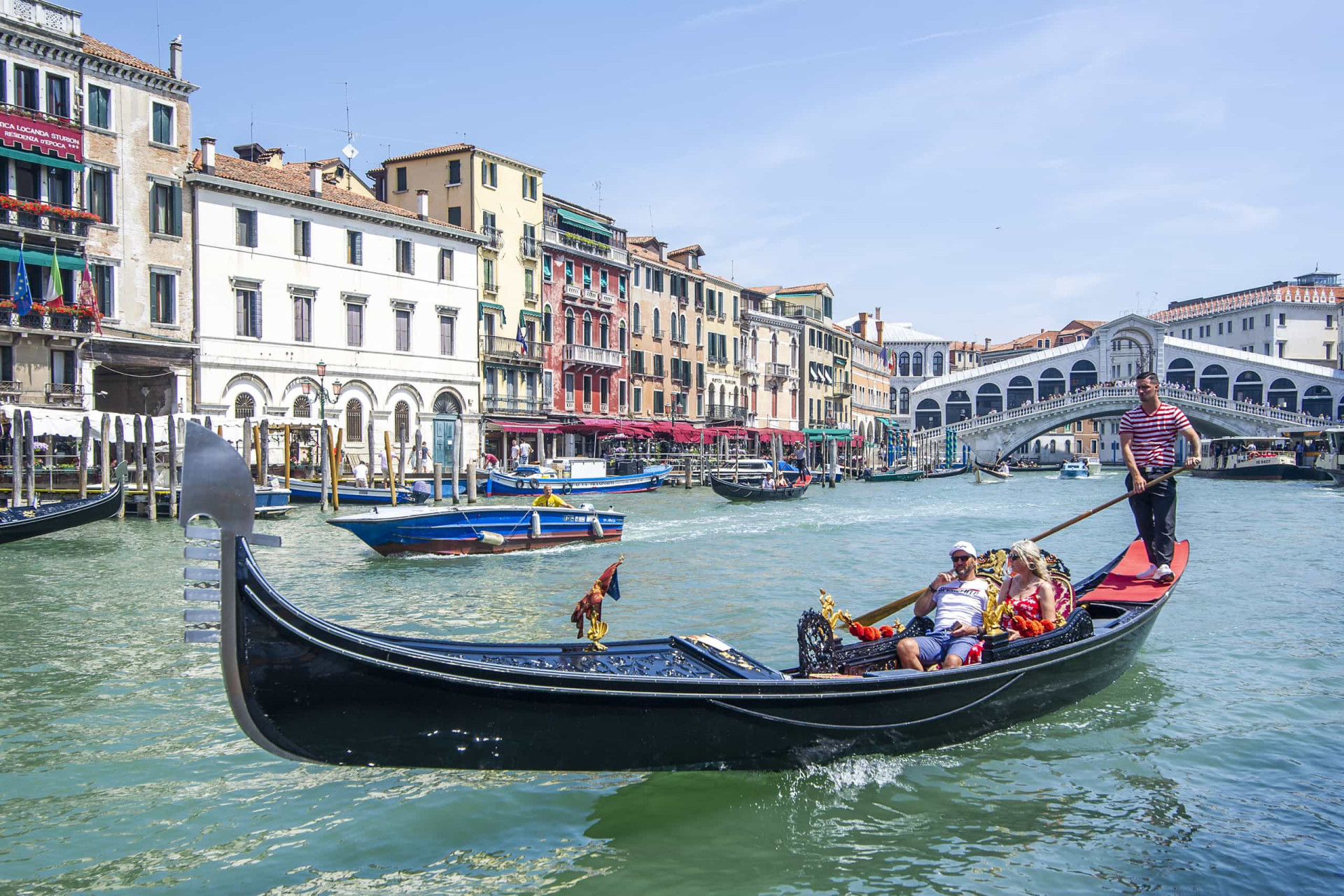
The tourism sector today
The tourism sector has become an economic engine in many countries, forming part of the international political agenda. In recent years, with low-cost flights and alternative accommodations, it's much easier for tourists to afford to travel and design their own itinerary.
Sources: ( DW ) ( Matador Network )
See also: The best travel destinations based on your zodiac sign
More for You
Donald Trump Handed Election Loss In Texas
18 Things That Will Happen if 70 Becomes the New Retirement Age in the US
Americans are finally catching on to Costco's tricks — here are 15 to watch out for so you don't get fleeced on your next trip
This U.S. State Is One of the Best Places to Retire for Low Crime, Taxes, and an Affordable Cost of Living
Trump rips De Niro after actor’s appearance outside courthouse
Why Aren't More People Driving Electric Cars? An EV Expert Weighs In
‘Should I live under a bridge?’ I get $5,600 a month in Social Security and retirement income, but my property taxes will soon be $20,000. Who can help?
How Much Are Two Dollar Bills Worth? Discover If Your Rare Bill Is Worth Big Bucks
North Korea gets mad
The Young and the Restless - Out of Hiding
One Donald Trump Juror Has Legal Expert Worried
Carnival Cruise Line warns passengers about a dangerous mistake
Chinese Car Company Says Its New Hybrids Will Do 1300 Miles on a Tank of Gas
Hillary Clinton calls out Comey in new interview. Hear his response
Is There Actually Any Pumpkin In Canned Pumpkin?
Here is the average income for retirees in the US — how do you compare?
Jury's 'Thorough' Requests Spell Bad News For Donald Trump: Legal Analyst
Blue Bloods boss shares heartwarming story of unexpected love story as show wraps up after 15 seasons
The hail in Texas was so big Tuesday that it required a new description
‘Wheel of Fortune’ Host Pat Sajak Loses it While Contestants Celebrate Incorrect Guess
Definition of 'pleasure trip'
Pleasure trip in british english.

Examples of 'pleasure trip' in a sentence pleasure trip
Trends of pleasure trip
View usage for: All Years Last 10 years Last 50 years Last 100 years Last 300 years
Browse alphabetically pleasure trip
- pleasure palace
- pleasure principle
- pleasure steamer
- pleasure trip
- pleasure-loving
- pleasure-seeker
- pleasure-seeking
- All ENGLISH words that begin with 'P'
Quick word challenge
Quiz Review
Score: 0 / 5

Wordle Helper

Scrabble Tools

- More from M-W
- To save this word, you'll need to log in. Log In
Definition of travel
(Entry 1 of 2)
intransitive verb
transitive verb
Definition of travel (Entry 2 of 2)
- peregrinate
- peregrination
Examples of travel in a Sentence
These examples are programmatically compiled from various online sources to illustrate current usage of the word 'travel.' Any opinions expressed in the examples do not represent those of Merriam-Webster or its editors. Send us feedback about these examples.
Word History
Middle English travailen, travelen to torment, labor, strive, journey, from Anglo-French travailler
14th century, in the meaning defined at intransitive sense 1a
14th century, in the meaning defined at sense 1a
Phrases Containing travel
- pre - travel
- see / travel the world
- travel agency
- travel agent
- travel light
- travel sickness
- travel trailer
Articles Related to travel

Is it ‘traveling’ or...
Is it ‘traveling’ or ‘travelling’?
A tale of two variants
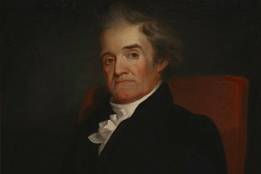
Noah Webster's Spelling Wins and Fails
Some of his biggest successes and defeats

8 Ways to Get Away From It All
Whether it's a jaunt or a junket, remember sunblock.
Dictionary Entries Near travel
Cite this entry.
“Travel.” Merriam-Webster.com Dictionary , Merriam-Webster, https://www.merriam-webster.com/dictionary/travel. Accessed 30 May. 2024.
Kids Definition
Kids definition of travel.
Kids Definition of travel (Entry 2 of 2)
Middle English travailen "torment, labor, strive, journey," from early French travailler "torment, labor," from an unrecorded Latin verb tripaliare "to torture," from Latin tripalium "an instrument of torture," literally "three stakes," derived from tri- "three" and palus "stake, pale" — related to pale entry 3 , travail
More from Merriam-Webster on travel
Nglish: Translation of travel for Spanish Speakers
Britannica English: Translation of travel for Arabic Speakers
Britannica.com: Encyclopedia article about travel
Subscribe to America's largest dictionary and get thousands more definitions and advanced search—ad free!

Can you solve 4 words at once?
Word of the day.
See Definitions and Examples »
Get Word of the Day daily email!
Popular in Grammar & Usage
More commonly misspelled words, commonly misspelled words, how to use em dashes (—), en dashes (–) , and hyphens (-), absent letters that are heard anyway, how to use accents and diacritical marks, popular in wordplay, pilfer: how to play and win, the words of the week - may 24, 9 superb owl words, 10 words for lesser-known games and sports, your favorite band is in the dictionary, games & quizzes.

- 1.1 Etymology
- 1.2 Pronunciation
- 1.3.1 Derived terms
- 1.3.2 Translations
- 1.4 Interjection
- 1.5.1 Derived terms
- 1.5.2 Related terms
- 1.5.3 Translations
- 1.6 Further reading
- 1.7 Anagrams
English [ edit ]
Etymology [ edit ].
From Early Modern English pleasur , plesur , alteration (with ending accommodated to -ure ) of Middle English plaisir ( “ pleasure ” ) , from Old French plesir , plaisir ( “ to please ” ) , infinitive used as a noun, conjugated form of plaisir or plaire , from Latin placeō ( “ to please, to seem good ” ) , from the Proto-Indo-European * pleh₂-k - ( “ wide and flat ” ) . Related to Dutch plezier ( “ pleasure, fun ” ) . More at please .
Pronunciation [ edit ]
- ( Received Pronunciation ) IPA ( key ) : /ˈplɛʒə/
- ( General American ) enPR : plĕzhʹər , IPA ( key ) : /ˈplɛʒɚ/
- Rhymes: -ɛʒə(ɹ)
- Hyphenation: pleas‧ure
Noun [ edit ]
pleasure ( countable and uncountable , plural pleasures )
- 2012 April 22, Sam Sheringham, “ Liverpool 0-1 West Brom ”, in BBC Sport : But the only statistic that will concern West Brom will be the scoreline, and their manager Roy Hodgson will take considerable pleasure from a victory over the club he managed for just 191 days.
- 2019 , Toro y Moi (lyrics and music), “Ordinary Pleasure”, in Outer Peace : Maximize all the pleasure / Even with all this weather / Nothing can make it better / Maximize all the pleasure
- 1611 , The Holy Bible, [ … ] ( King James Version ), London: [ … ] Robert Barker , [ … ] , →OCLC , Acts 25:9 : Festus, willing to do the Jews a pleasure
- 1897 December (indicated as 1898 ), Winston Churchill , chapter VIII, in The Celebrity: An Episode , New York, N.Y.: The Macmillan Company ; London: Macmillan & Co., Ltd. , →OCLC : The humor of my proposition appealed more strongly to Miss Trevor than I had looked for, and from that time forward she became her old self again; [ … ] . Now she had come to look upon the matter in its true proportions, and her anticipation of a possible chance of teaching him a lesson was a pleasure to behold.
- 2013 May 17, George Monbiot , “ Money just makes the rich suffer ”, in The Guardian Weekly , volume 188 , number 23 , page 19 : In order to grant the rich these pleasures , the social contract is reconfigured. The welfare state is dismantled. […]
- ( uncountable ) Sexual enjoyment .
- ( uncountable ) One's preference . Synonyms: desire , fancy , want , will , wish What is your pleasure : coffee or tea?
- c. 1596–1598 (date written), William Shakespeare , “ The Merchant of Venice ”, in Mr. William Shakespeares Comedies, Histories, & Tragedies [ … ] ( First Folio ), London: [ … ] Isaac Iaggard , and Ed [ ward ] Blount , published 1623 , →OCLC , [ Act III, scene ii ] : Use your pleasure ; if your love do not persuade you to come, let not my letter.
- 1611 , The Holy Bible, [ … ] ( King James Version ), London: [ … ] Robert Barker , [ … ] , →OCLC , Isaiah 48:14 : He will do his pleasure on Babylon.
Derived terms [ edit ]
- antipleasure
- at Her Majesty's pleasure , at His Majesty's pleasure
- at one's pleasure , at pleasure
- business before pleasure
- do someone a pleasure
- do someone the pleasure of
- during Her Majesty's pleasure , during His Majesty's pleasure
- during one's pleasure , during pleasure
- end-pleasure
- English pleasure
- fore-pleasure
- gold of pleasure , gold-of-pleasure , gold-pleasure
- guilty pleasure
- have the pleasure
- it's a pleasure
- lady of pleasure
- live at Her Majesty's pleasure
- man of pleasure
- mix business with pleasure
- my pleasure
- oral pleasure
- pleasurable
- pleasurance
- pleasure barge
- pleasure boat
- pleasure-carriage
- pleasure center , pleasure centre
- pleasure craft
- pleasure cruise
- pleasure curve
- pleasure dome
- pleasuredrome
- pleasureful
- pleasure garden
- pleasure-giving
- pleasure ground
- pleasurehood
- pleasure house
- pleasureless
- pleasure-loving
- pleasurement
- pleasure moment
- pleasuremonger
- pleasure of someone's company
- pleasure-pain principle
- pleasure principle
- pleasure-seeker
- pleasure seeker
- pleasure-seeking
- pleasures of the flesh
- pleasures of the table
- pleasure steamer
- pleasure trip
- pleasure-unpleasure principle
- self-pleasure
- sexual pleasure
- take pleasure
- the pleasure is all mine , the pleasure's all mine
- the pleasure is mine , the pleasure's mine
- to one's pleasure , to pleasure
- to what do I owe the pleasure
- western pleasure
- what's your pleasure
- with pleasure
- woman of pleasure
Translations [ edit ]
Interjection [ edit ].
- pleased to meet you , "It's my pleasure"
Verb [ edit ]
pleasure ( third-person singular simple present pleasures , present participle pleasuring , simple past and past participle pleasured )
- 1864 , Alfred Tennyson , “Aylmer’s Field”, in Enoch Arden, &c. , London: Edward Moxon & Co. , [ … ] , →OCLC , page 55 : [H]e / [...] / Had tost his ball and flown his kite, and roll'd / His hoop to pleasure Edith, [...]
- ( transitive ) To give sexual pleasure to. Johnny pleasured Jackie with his mouth last night.
- ( intransitive , dated ) To take pleasure; to seek or pursue pleasure. to go pleasuring
- pleasure oneself
Related terms [ edit ]
- displeasure
Further reading [ edit ]
- “ pleasure ”, in Webster’s Revised Unabridged Dictionary , Springfield, Mass.: G. & C. Merriam , 1913 , →OCLC .
- “ pleasure ”, in The Century Dictionary [ … ] , New York, N.Y.: The Century Co. , 1911 , →OCLC .
Anagrams [ edit ]
- English terms derived from Proto-Indo-European
- English terms derived from the Proto-Indo-European root *pleh₂-
- English terms inherited from Middle English
- English terms derived from Middle English
- English terms derived from Old French
- English terms derived from Latin
- English 2-syllable words
- English terms with IPA pronunciation
- English terms with audio links
- Rhymes:English/ɛʒə(ɹ)
- Rhymes:English/ɛʒə(ɹ)/2 syllables
- English lemmas
- English nouns
- English uncountable nouns
- English countable nouns
- English terms with usage examples
- English terms with quotations
- English formal terms
- English interjections
- English verbs
- English transitive verbs
- English intransitive verbs
- English dated terms
- en:Emotions
- English entries with topic categories using raw markup
- American Sign Language terms in nonstandard scripts
- Mandarin terms with redundant transliterations
- Urdu terms with redundant script codes
- Yiddish terms with non-redundant manual transliterations
Navigation menu
- Entering, Transiting and Departing

- General Entry Requirements
- Visa Requirements
- Submit SG Arrival Card
- What you can bring
- Transfer of Remains for Cremation / Burial to Singapore
- Public Health Requirements
- Yellow Fever Vaccination Certificate
- Clearance Procedure for Travellers
- Clearance Procedure for Sea Crew / Pleasure Craft owners
- Cargo and Postal Article Requirements
- Taking Cash In and Out of Singapore
- Woodlands and Tuas Checkpoints Traffic Updates
- Three-Quarter Tank Rules for Departing Vehicles
- Driving In and Out of Singapore
- Use of QR Code for Immigration Clearance at Woodlands and Tuas Checkpoints
- Retrieve e-Pass Record
- Check the End of Your Stay
- Advice for Singapore Citizens Travelling Abroad/Returning to Singapore
- Child Born Overseas
- APEC Business Travel Card
- Apply for Overseas Automated Clearance
- Renunciation of Singapore Citizenship
- Check Re-Entry Permit Validity
- Renunciation of Permanent Residence
- Check if You Need an Entry Visa
- Seek Extension of Visit Pass
- Report Loss of Foreign Passport
- Delivering a Child in Singapore
- Tourist Refund Scheme
- Automated Clearance Initiative

IMAGES
VIDEO
COMMENTS
Scientists behind one of the studies noted that it's likely about the psychology of a workspace; the contrast of a screen showing happy carefree tourists and a cramped office may make us more ...
Pleasure is defined as a feeling of happiness, satisfaction, or enjoyment. Therefore, the pursuit of such feelings through travel is referred to as pleasure tourism. According to Currie (1997), "tourism" means pleasure travel, and according to the UNWTO (2007), pleasure represents the main purpose of tourism.
The Nature of Pleasure in Pleasure Trav el. DA VID A. FENNELL. Abstract: It is indeed ironic that despite the importance of pleasure as a central theme in both the practice and theory. of travel ...
Leisure travel refers to traveling for pleasure rather than business or work-related purposes. It is a type of travel that involves exploring new destinations, engaging in recreational activities, and relaxing and unwinding. Whether traveling alone or with friends and family, leisure travel provides a much-needed break from the daily routine ...
Pleasure is defined as a feeling of happiness, satisfaction, or enjoyment. Therefore, the pursuit of such feelings through travel is referred to as pleasure tourism. According to Currie ( 1997 ), "tourism" means pleasure travel, and according to the UNWTO ( 2007 ), pleasure represents the main purpose of tourism.
It is indeed ironic that despite the importance of pleasure as a central theme in both the practice and theory of travel, there is a critical absence of knowledge from which to theoretically and conceptually situate this concept in our field. Given this current state, the purpose of this paper is to undertake a general survey of literature on ...
Pleasure is defined as a feeling of happiness, satisfaction, or enjoyment. Therefore, the pursuit of. such feelings through travel is referred to as pleasure tourism. According to Currie (1997 ...
Using data from the 2006 Travel and Activity Motivation Survey, this article examines the three most popular benefits of vacation or pleasure travel: rest and relaxation (R&R index); nurturing family and friendship ties (family-and-friends index); and learning and discovery (discovery index). The study population is restricted to travellers ...
Travel for pleasure and tourism has not typically been included as a human universal, but visiting others has been common in history. Travel required in order to seek mates outside of one's own social group is typical. Hadza hunter-gatherers of northern Tanzania, for example, usually live in groups of about 25. While marriage sometimes occurs ...
travel, defined as 'the pursuit of pleasure in a location away from everyday life and the use of one's leisure time for non- work purposes' (Page and Connell 2006: 23), holds special
tourism, the act and process of spending time away from home in pursuit of recreation, relaxation, and pleasure, while making use of the commercial provision of services.As such, tourism is a product of modern social arrangements, beginning in western Europe in the 17th century, although it has antecedents in Classical antiquity.. Tourism is distinguished from exploration in that tourists ...
Identification. Leisure travel is travel in which the primary motivation is to take a vacation from everyday life. A leisure trip is often characterized by staying in nice hotels or resorts, relaxing on beaches or in a room, or sightseeing and experiencing local tourist attractions. Most meals are eaten out when traveling for pleasure ...
This definition is identical to the definition of SNA 2008, 9.42: ... Travel / traveller: Travel refers to the activity of travellers. A traveller is someone who moves between different geographic locations, for any purpose and any duration (IRTS 2008, 2.4). The visitor is a particular type of traveller and consequently tourism is a subset of ...
But in terms of society, travel is a way for humans to take part in social activities, or personal pleasure, such as with leisure travel. An example of leisure travel is when a family visits an ...
Thomas Cook. English businessman Thomas Cook was the first to introduce tour packages, which included travel and accommodation. In 1841, he arranged a tour for around 570 people to travel from ...
Learn the definition of 'pleasure travel'. Check out the pronunciation, synonyms and grammar. Browse the use examples 'pleasure travel' in the great English corpus. ... Ideally located for business or pleasure travel, it is easily accessible from the A23 motorway (off exit 7) and is just steps away from the Auchan Petite Forêt shopping centre.
pleasure trip: 1 n a journey taken for pleasure "it was merely a pleasure trip " Synonyms: excursion , expedition , jaunt , junket , outing , sashay Types: airing a short excursion (a walk or ride) in the open air field trip a group excursion (to a museum or the woods or some historic place) for firsthand examination Type of: journey , ...
Travel is the movement of people between distant geographical locations. Travel can be done by foot, bicycle, automobile, train, boat, bus, airplane, ship or other means, with or without luggage, and can be one way or round trip. [1] Travel can also include relatively short stays between successive movements, as in the case of tourism .
To travel is the act of going from one place to another, usually a considerable distance. Your daily commute in the morning doesn't generally count as travel. ... sail or travel about for pleasure, relaxation, or sightseeing. take the road. give theatrical performances while traveling from town to town. see, visit. go to see a place, as for ...
A trip for recreational purposes.... Click for English pronunciations, examples sentences, video.
Bleisure travel is always the same concept: Combining business + leisure (bleisure) during a trip rather than dedicating it to work or pleasure alone. To really understand bleisure trips, consider the different ways this type of travel can work: Business trips with personal time tacked onto the start/end of the trip
Pleasure Trip definition: A trip taken for personal , non-work reasons.
travel: [verb] to go on or as if on a trip or tour : journey. to go as if by traveling : pass. associate. to go from place to place as a sales representative or business agent.
pleasure travel translation in English - English Reverso dictionary, see also 'pleasure boat, pleasure craft, a pleasure/the pleasure, It's a pleasure/my pleasure', examples, definition, conjugation
Prostitution is the business or practice of engaging in sexual activity in exchange for payment. The definition of "sexual activity" varies, and is often defined as an activity requiring physical contact (e.g., sexual intercourse, non-penetrative sex, manual sex, oral sex, etc.) with the customer. The requirement of physical contact also creates the risk of transferring infections.
Noun [ edit] pleasure ( countable and uncountable, plural pleasures) ( uncountable) A state of being pleased or contented; gratification . Synonyms: delight, gladness, gratification, happiness, indulgence, satisfaction. Antonyms: displeasure, pain. He remembered with pleasure his home and family. I get a lot of pleasure from watching others ...
Identity Cards, Passport and other Documents. Entering, Transiting and Departing. Reside, Study and Work in Singapore. e-Services and Forms. Check Status / Make Appointment. Travellers will need to take note of border requirements or restrictions that are in place. Please click the buttons below for more details on entering, transiting or ...
Learn from UNC, Georgia Tech, and Notre Dame! Universities can't reopen safely yet. Don't put the lives of your staff, students, and Williamsburg community at risk.